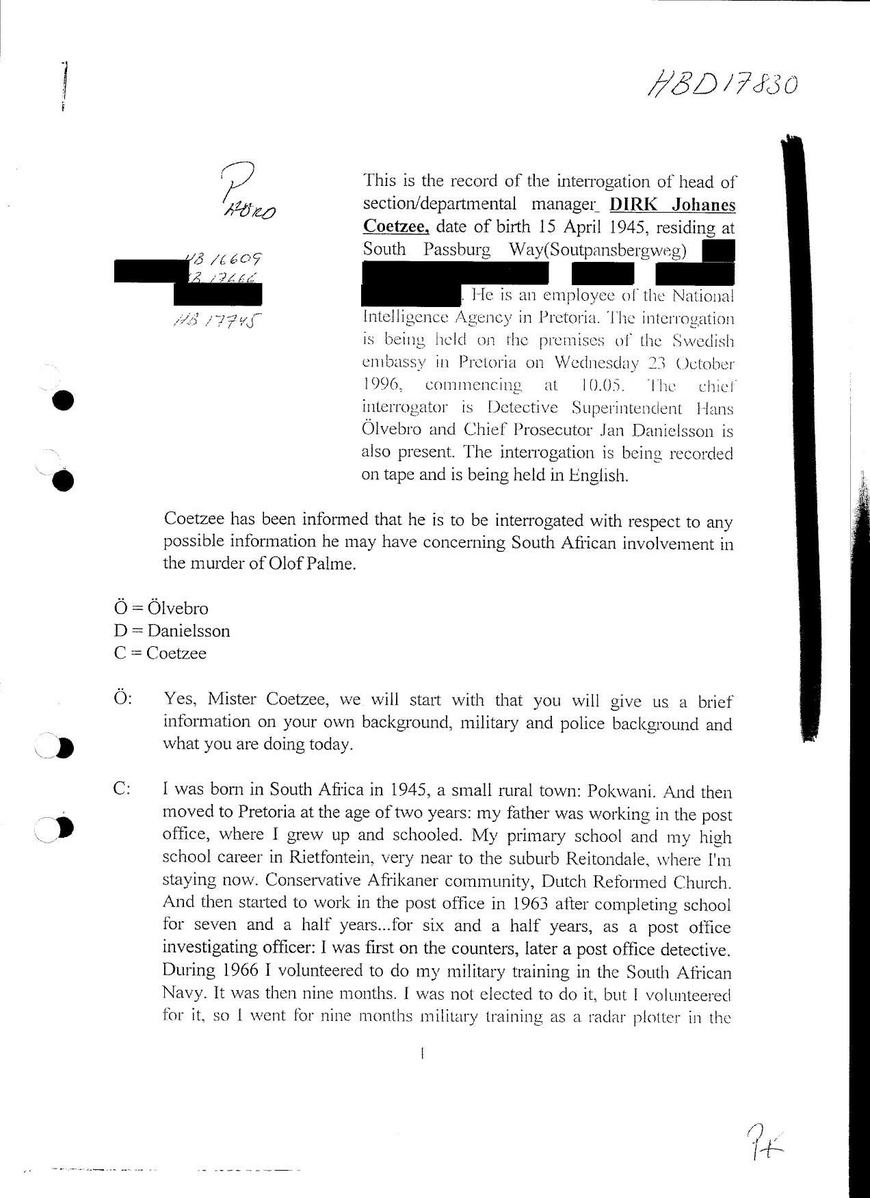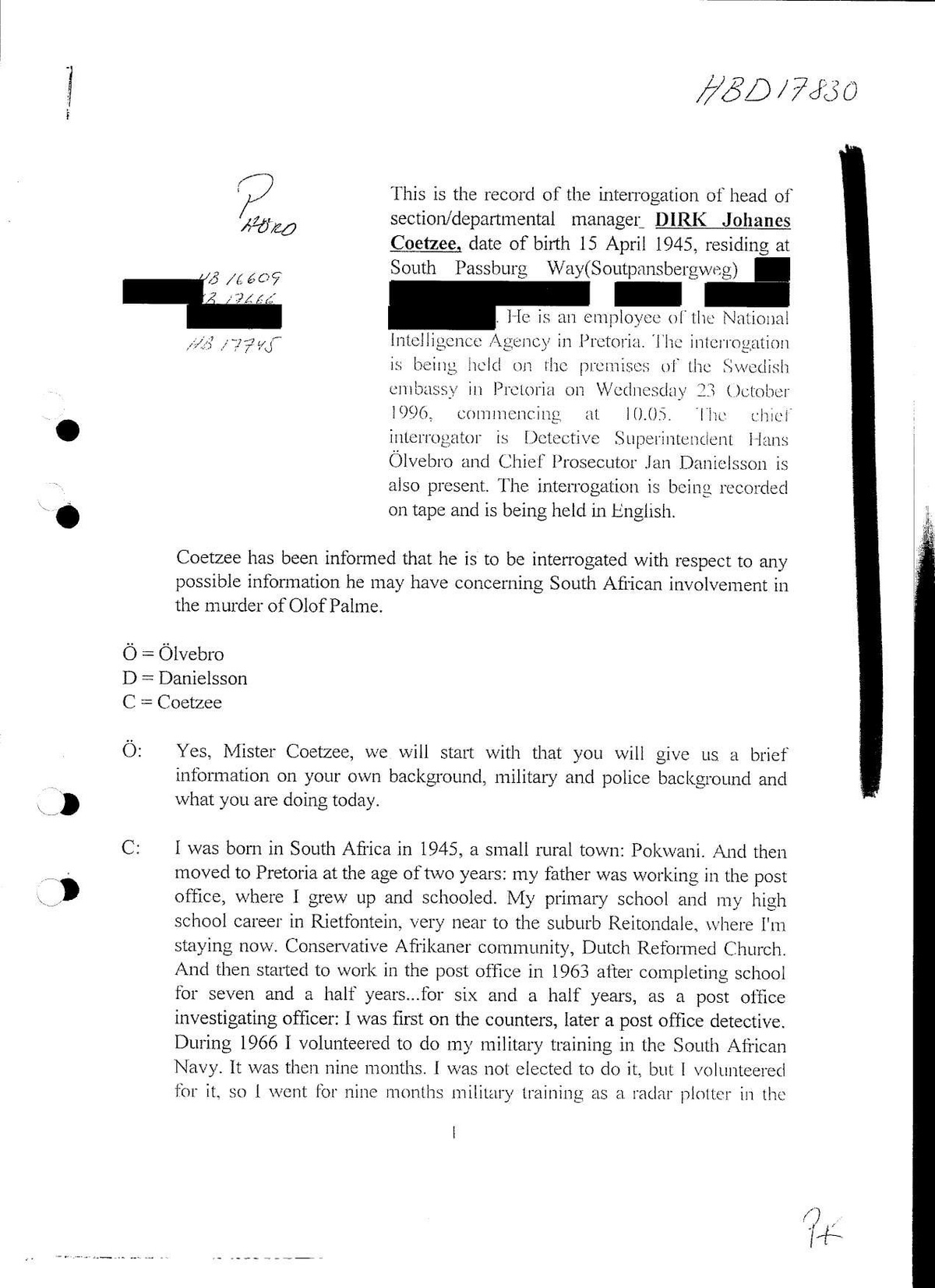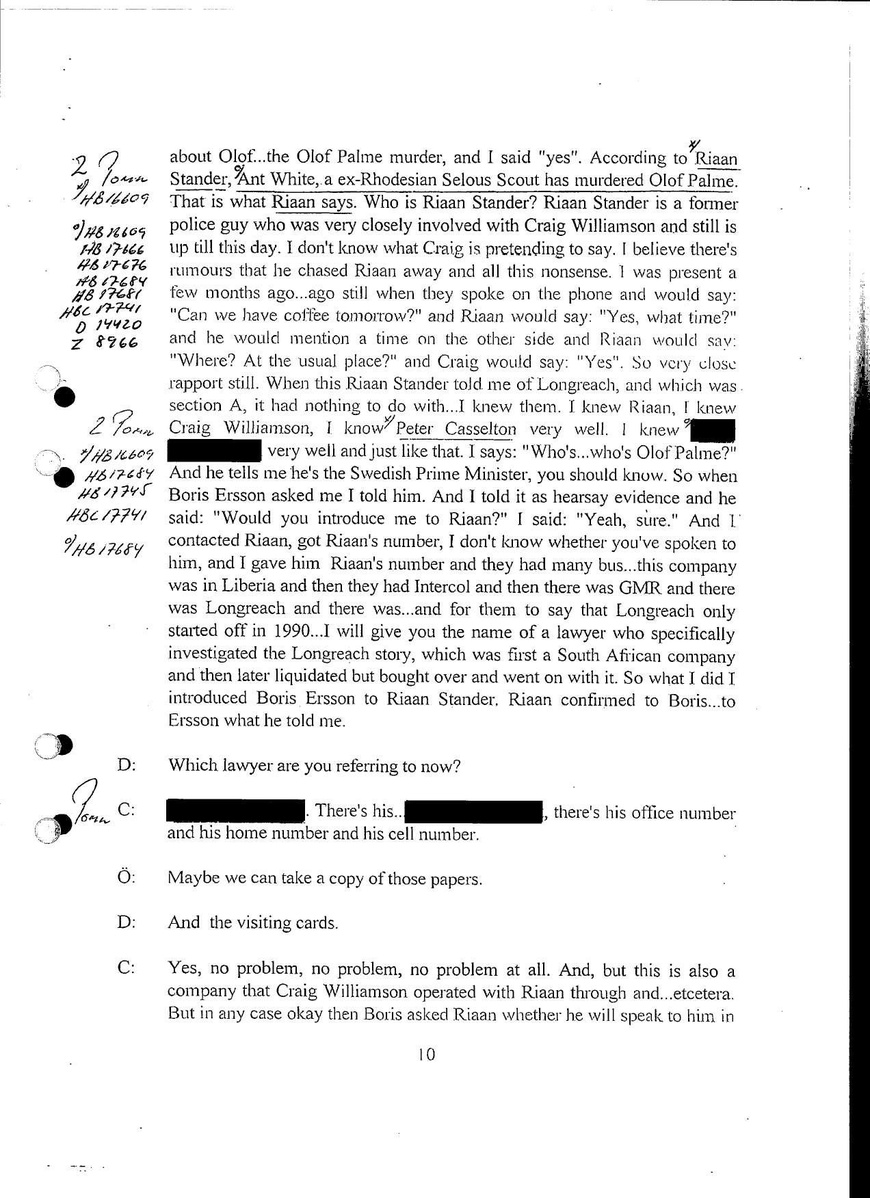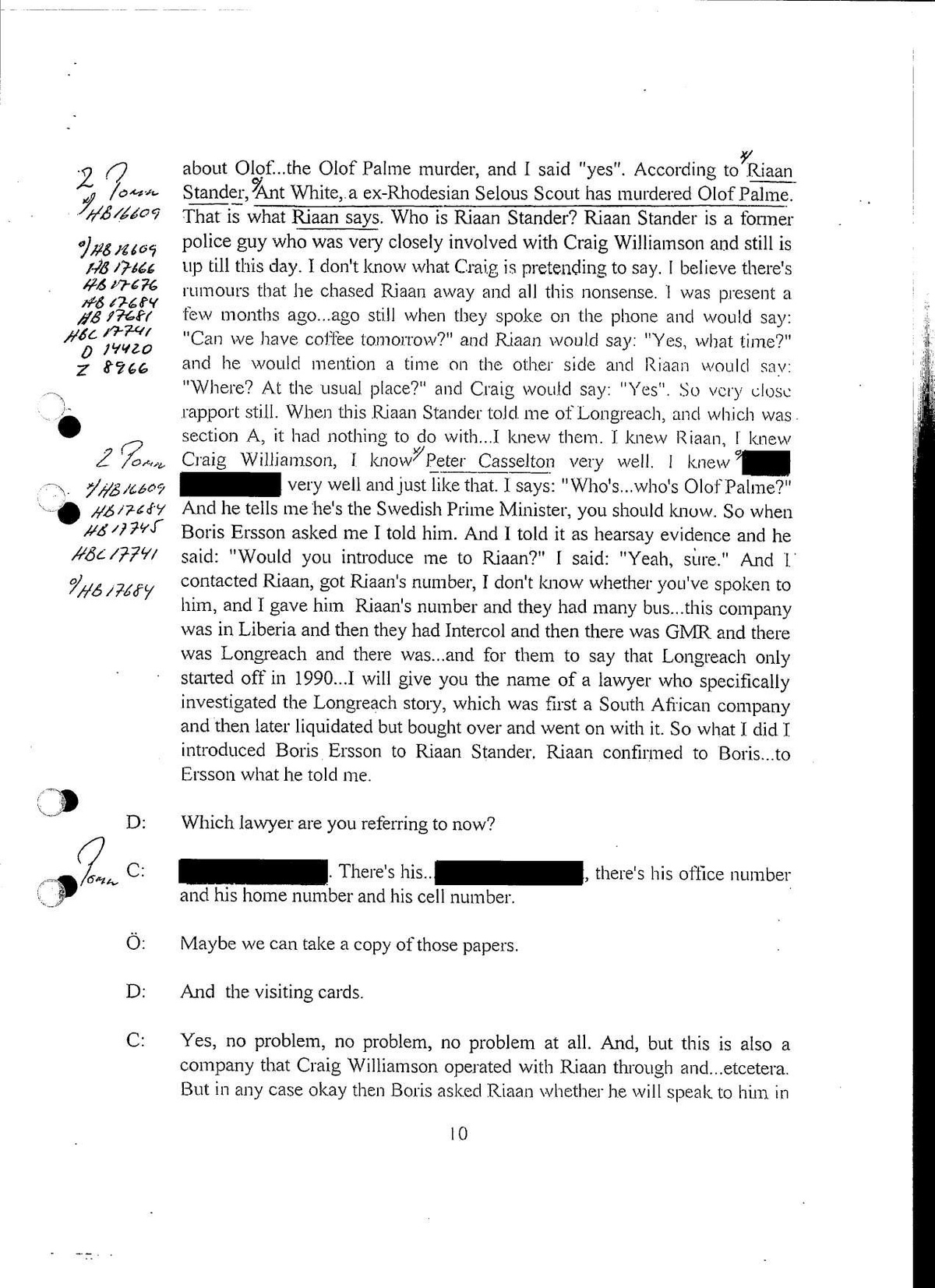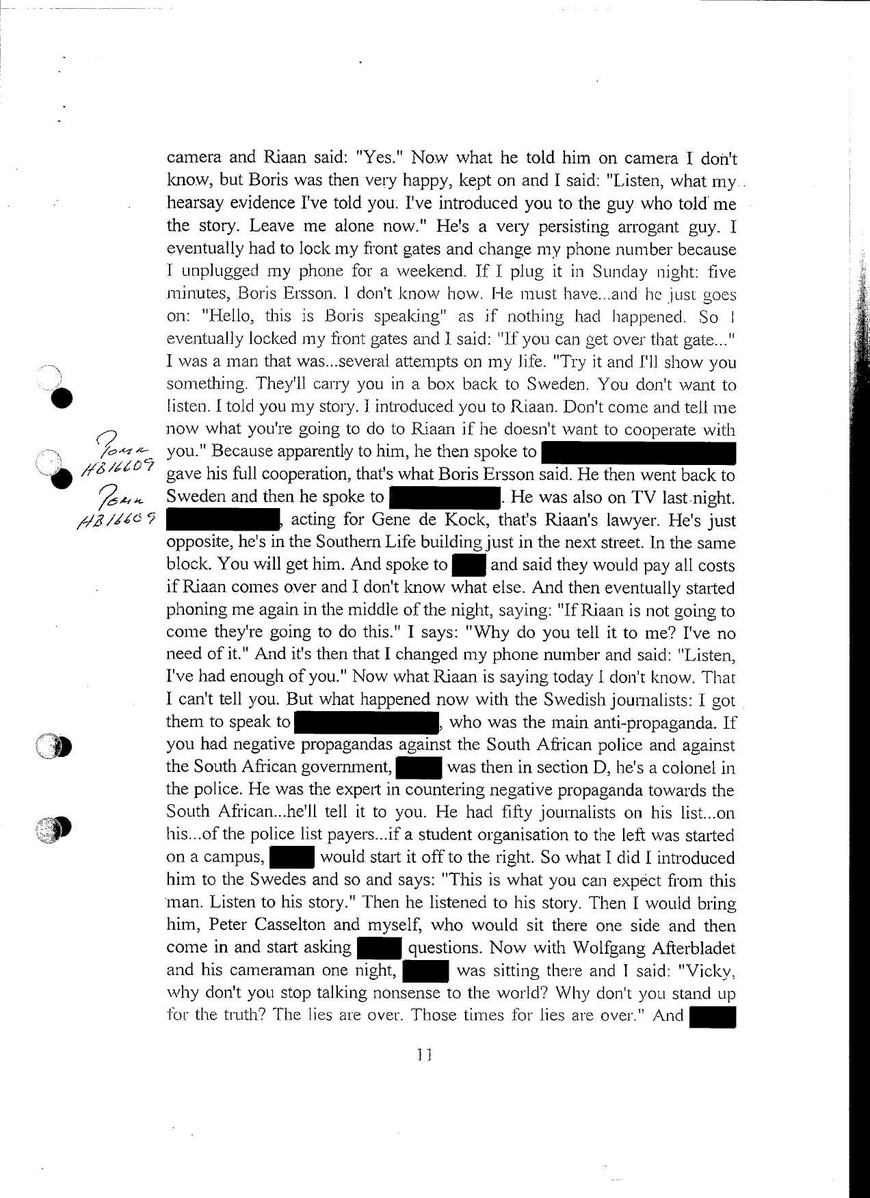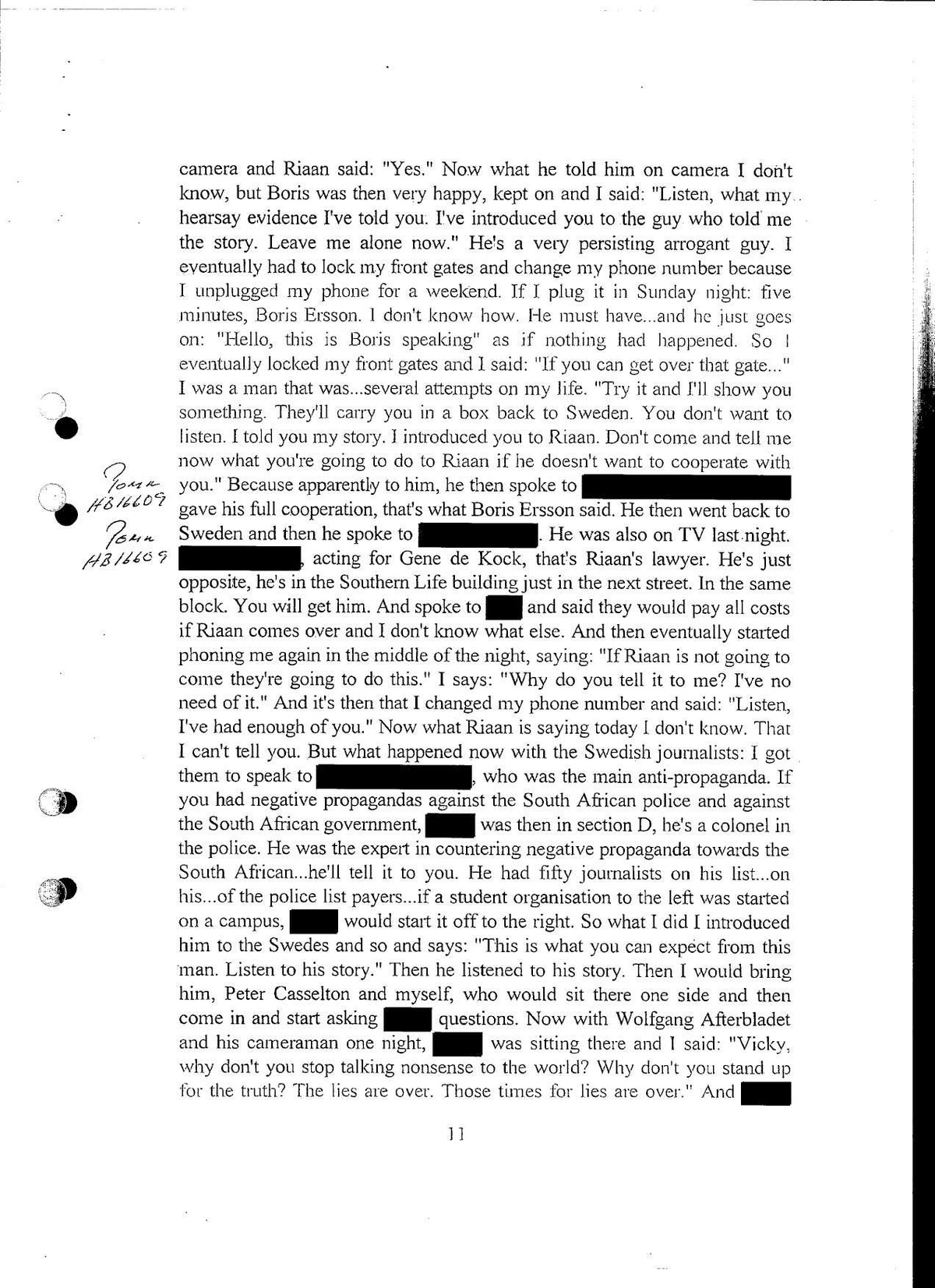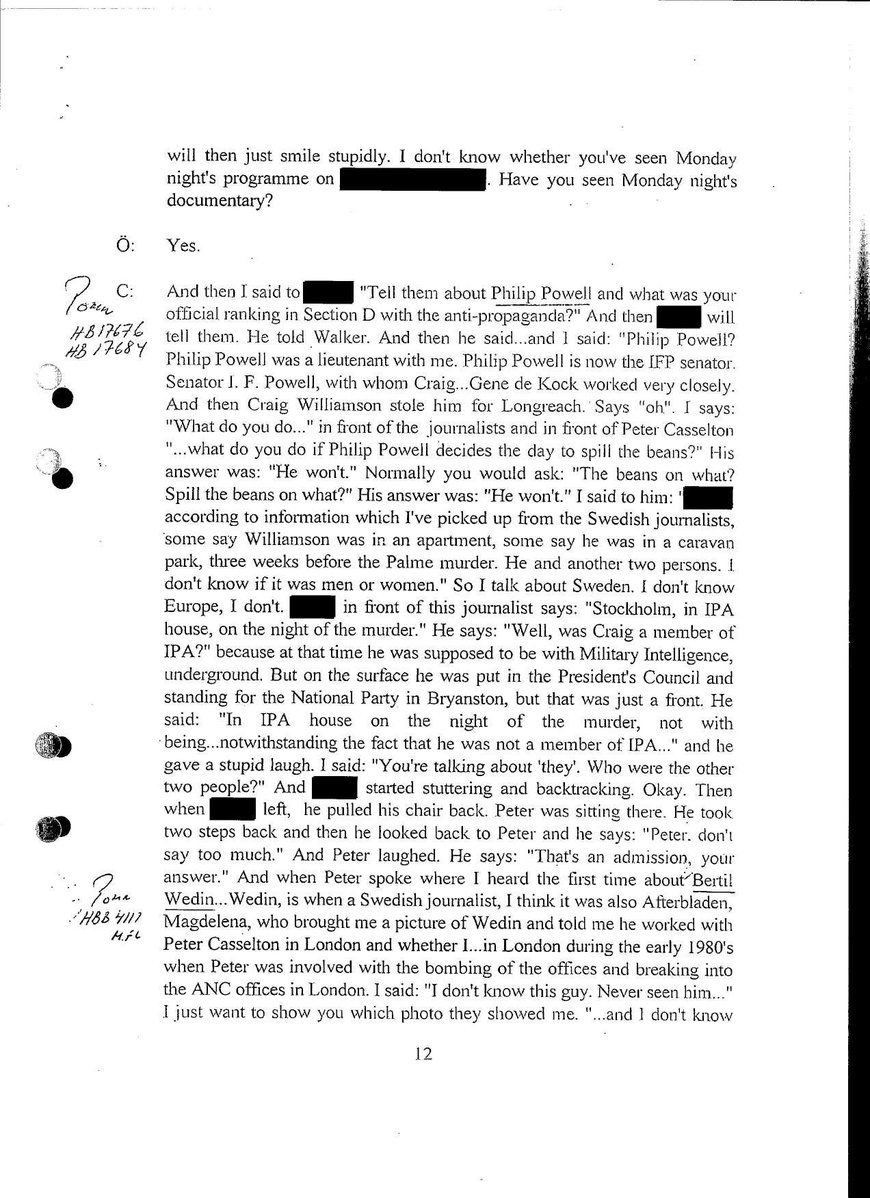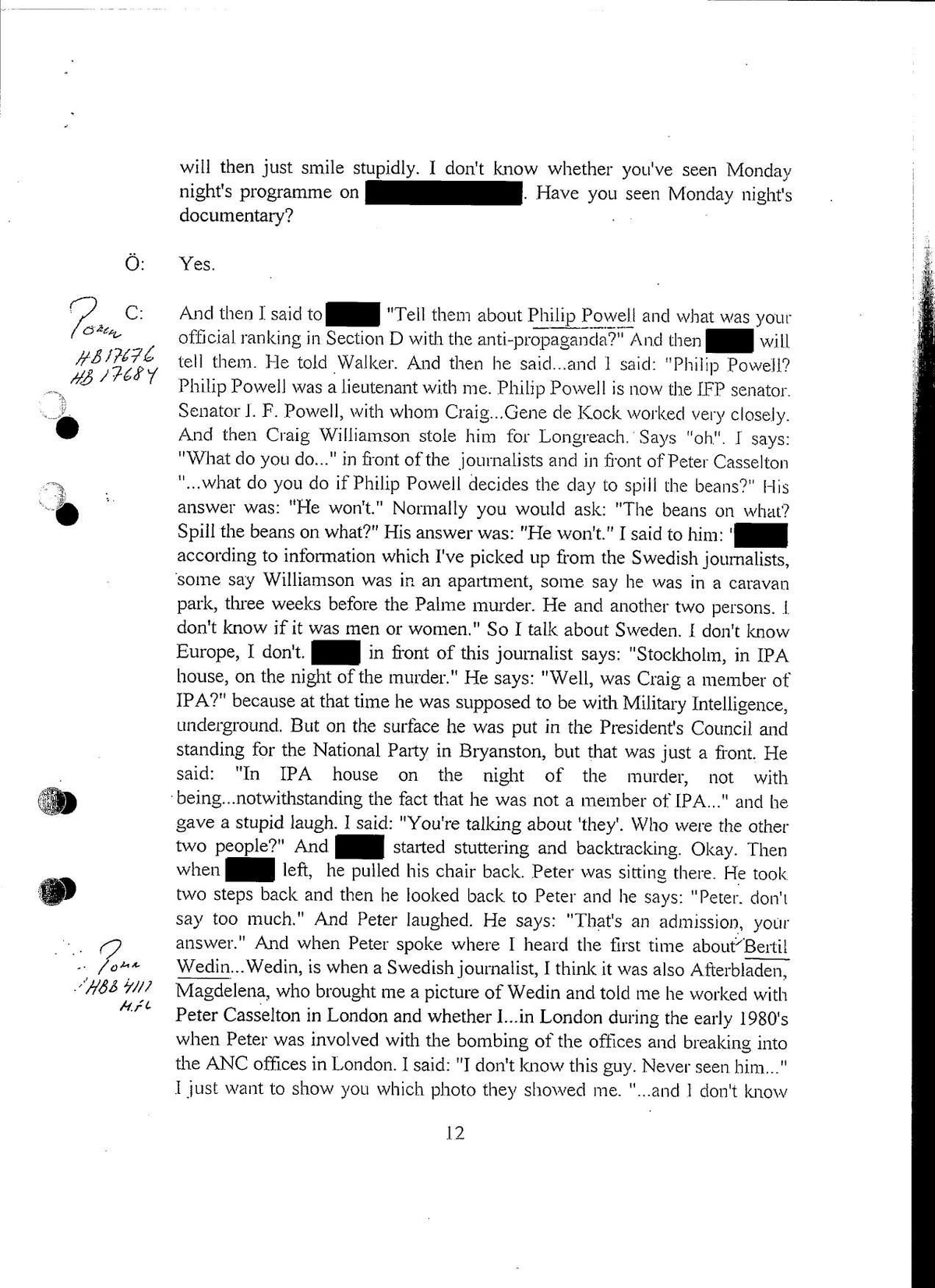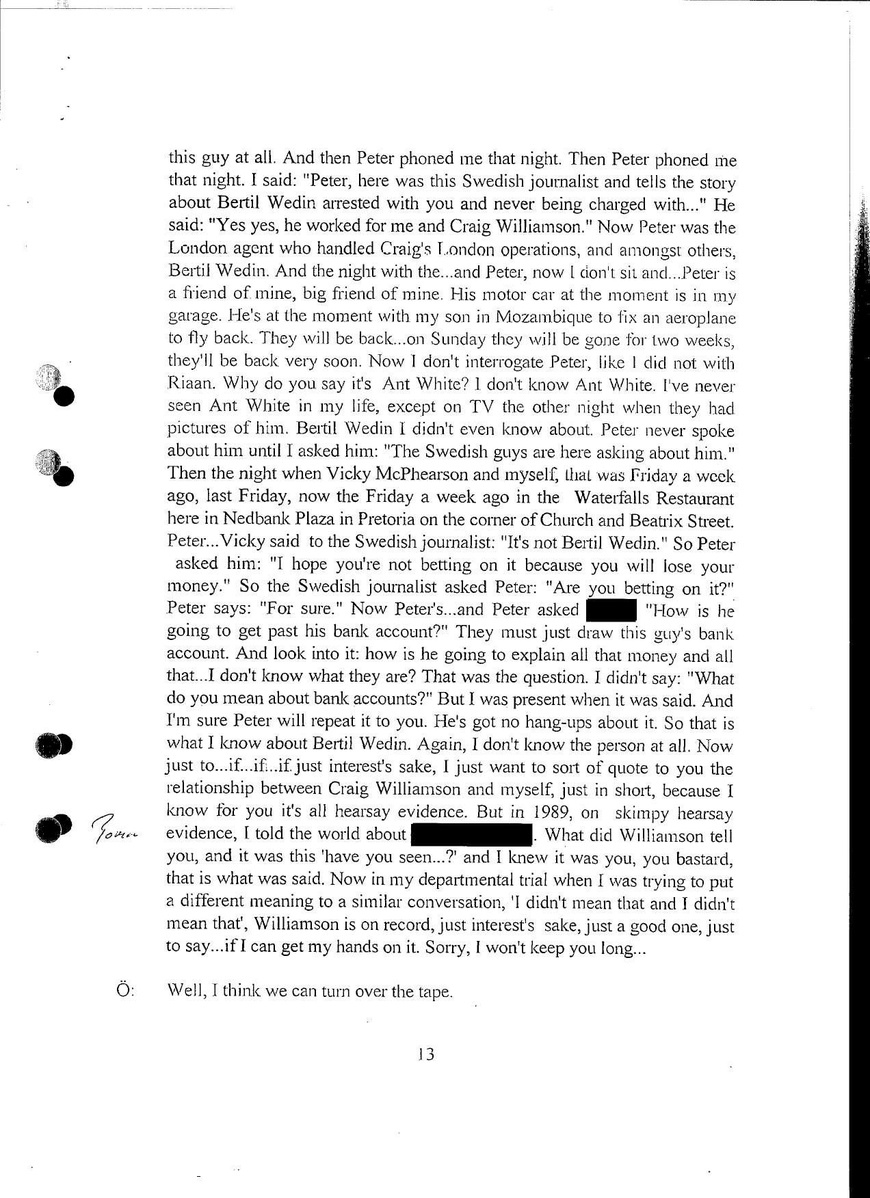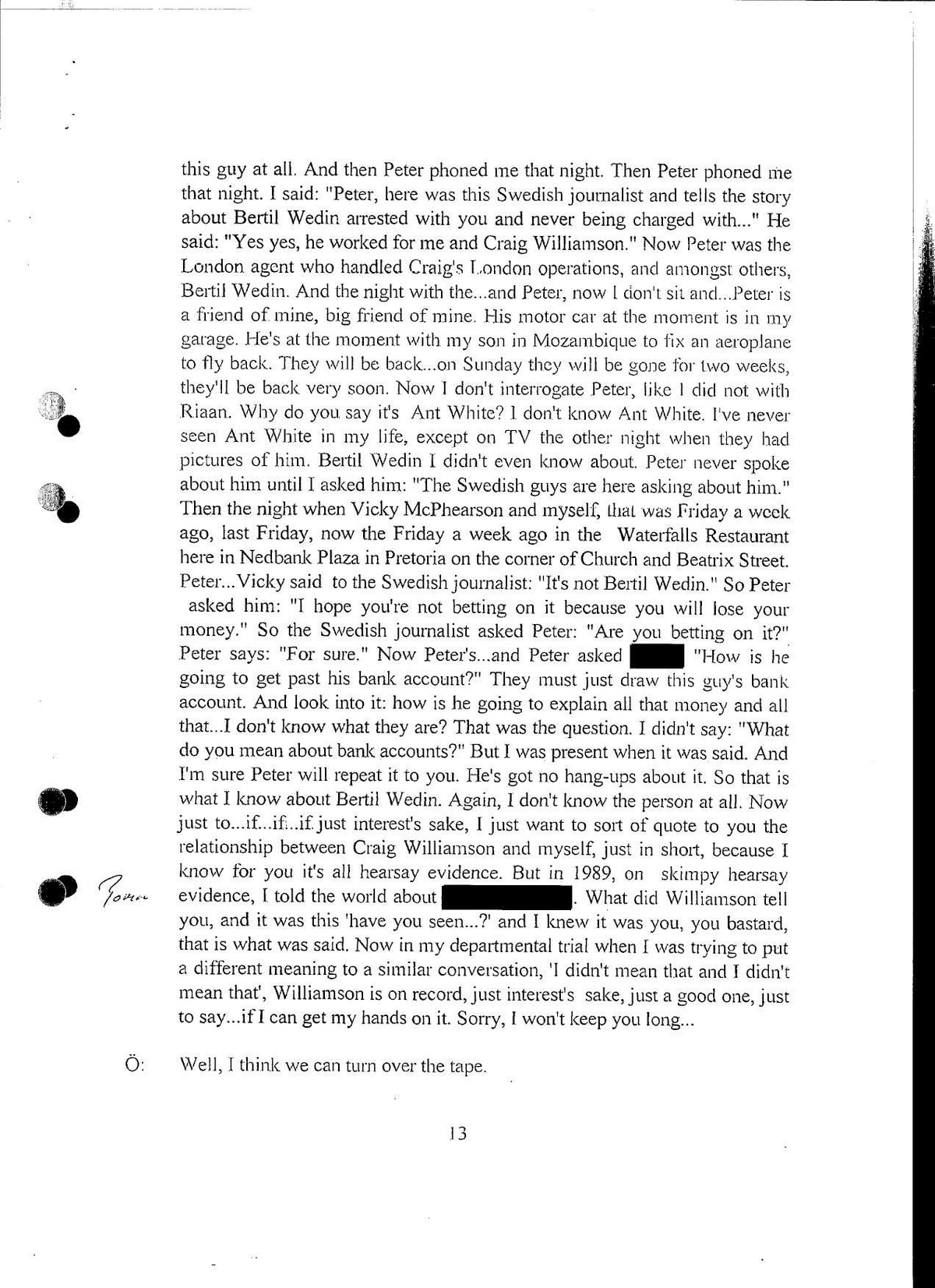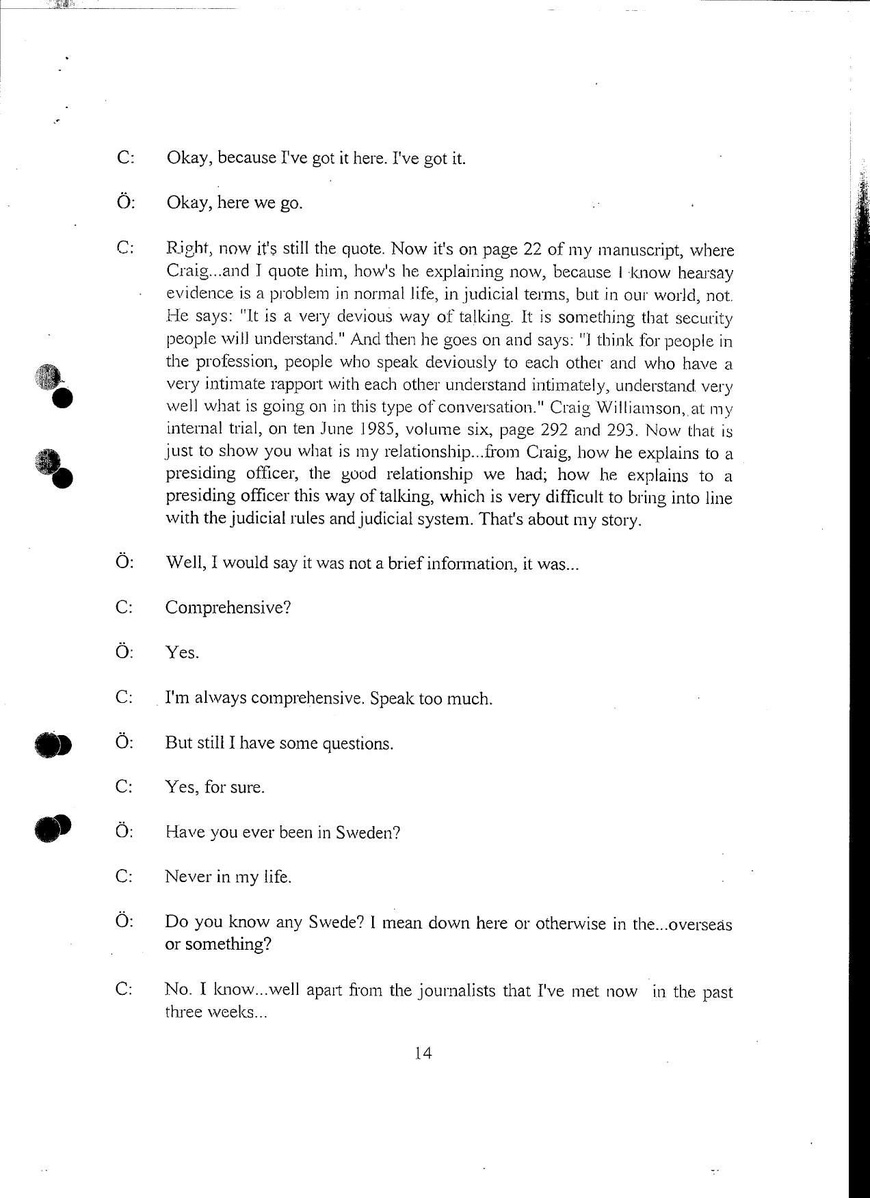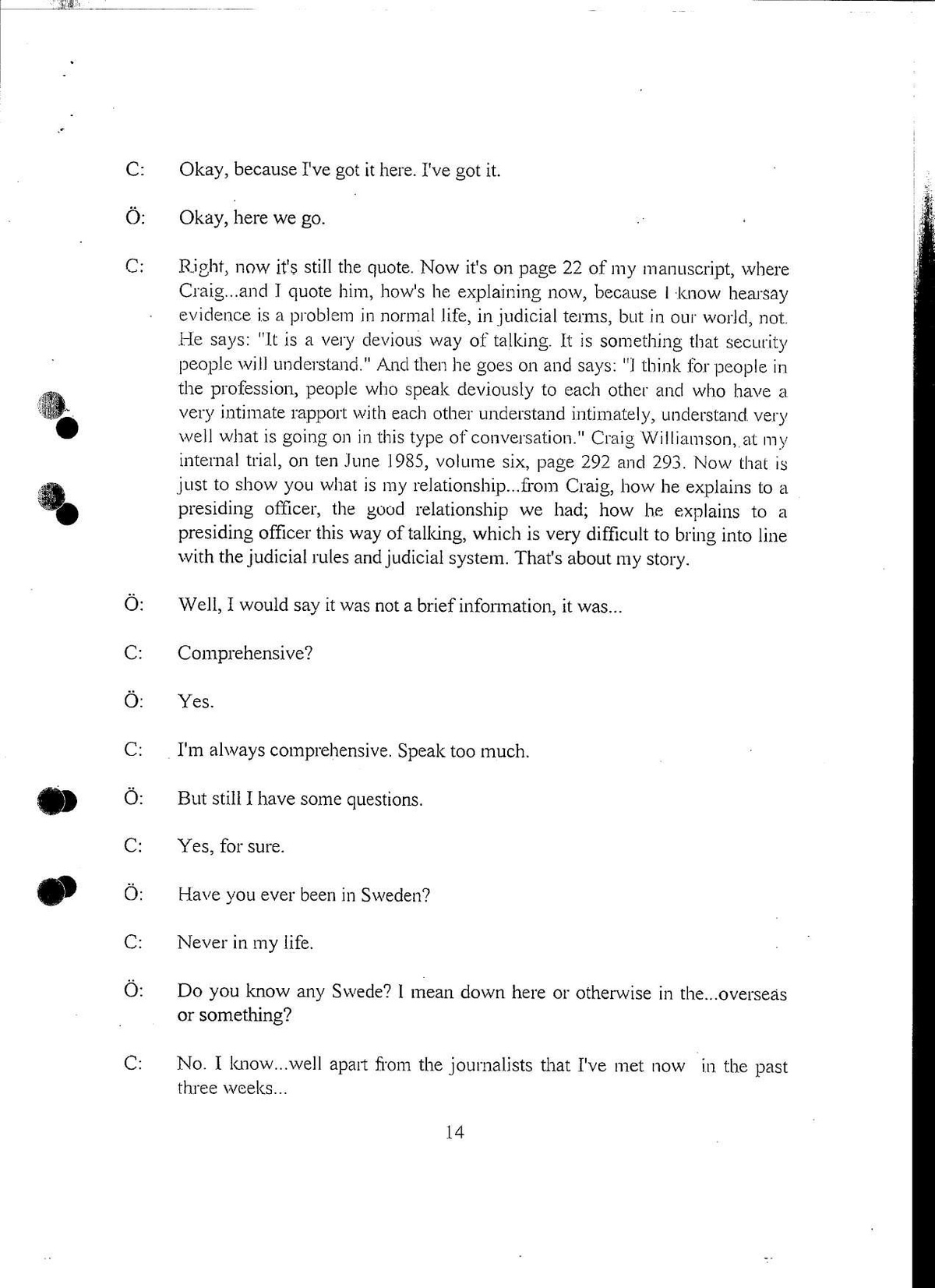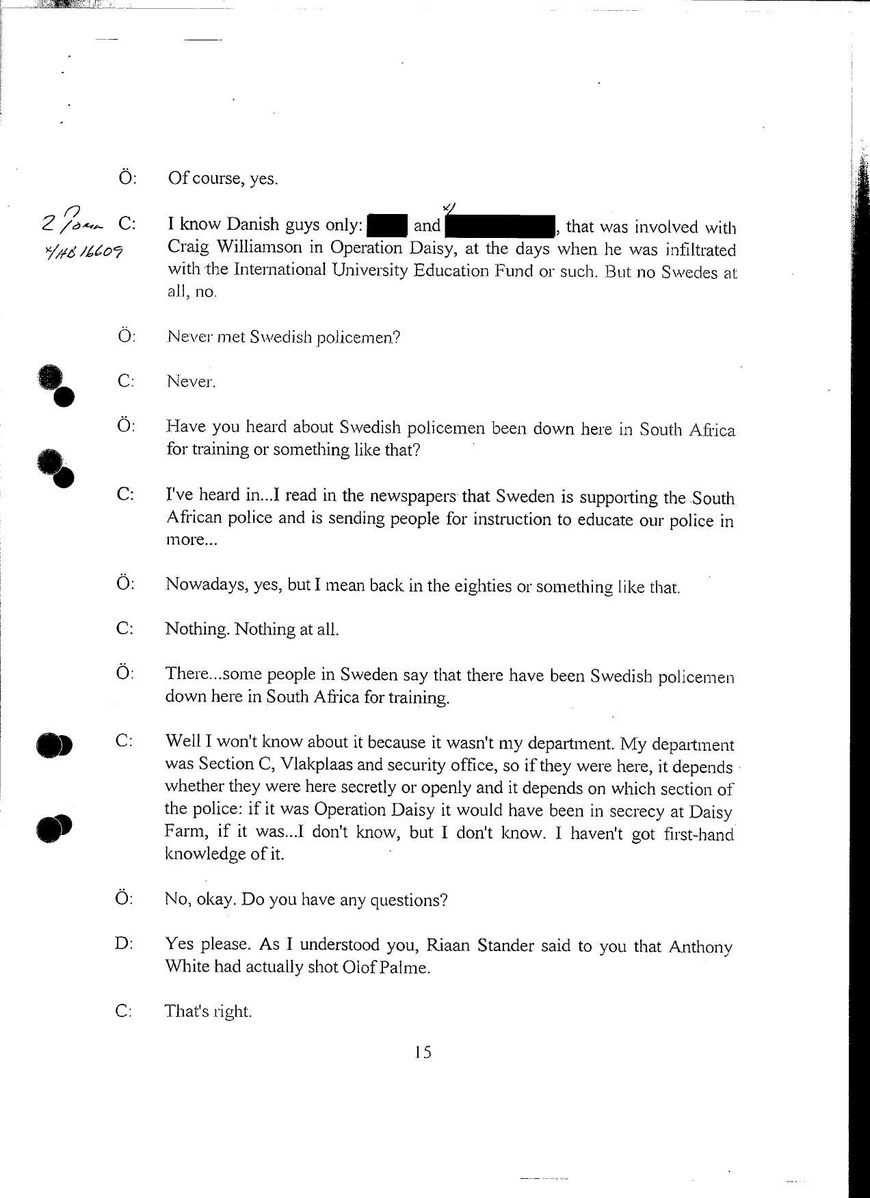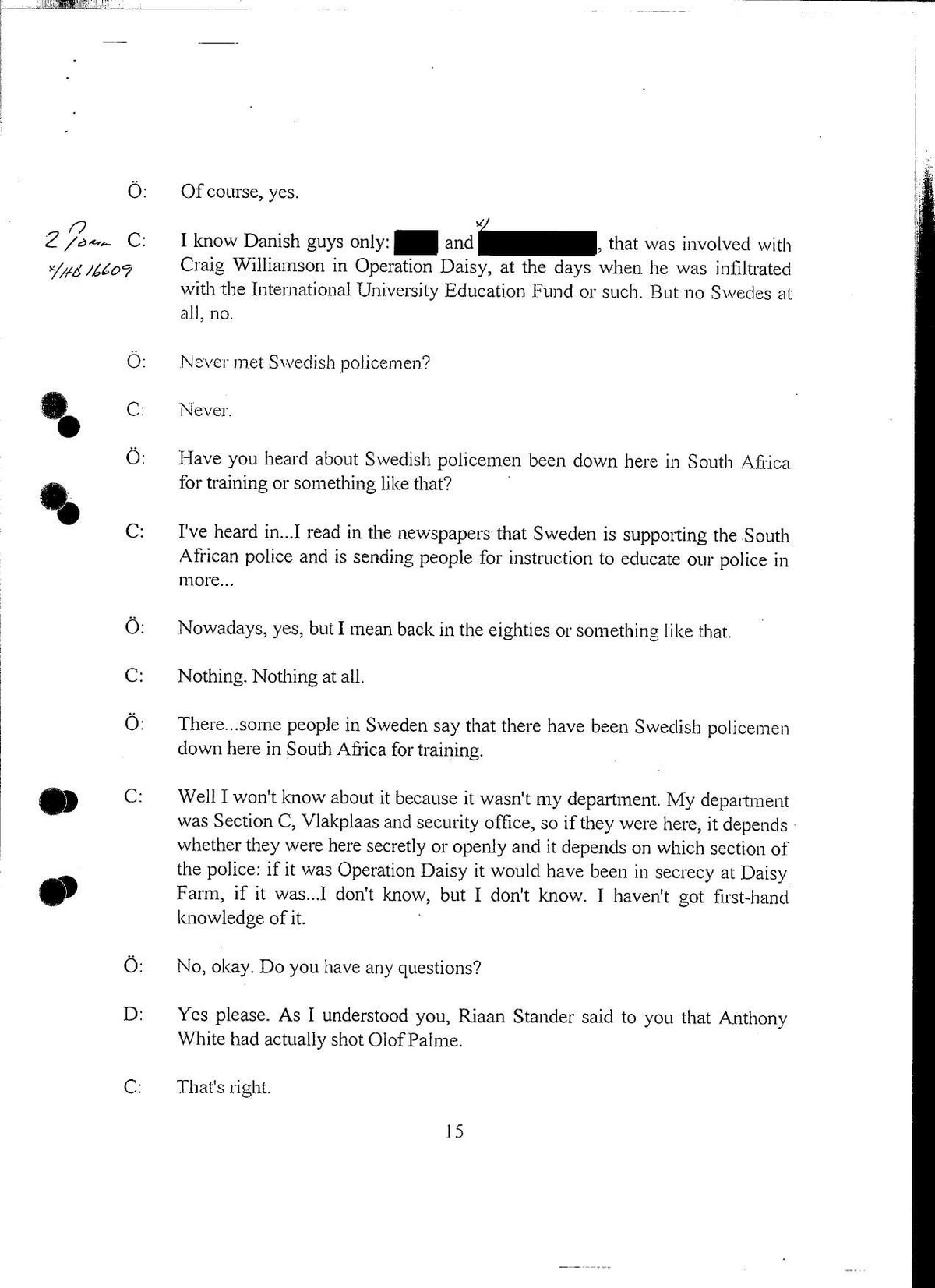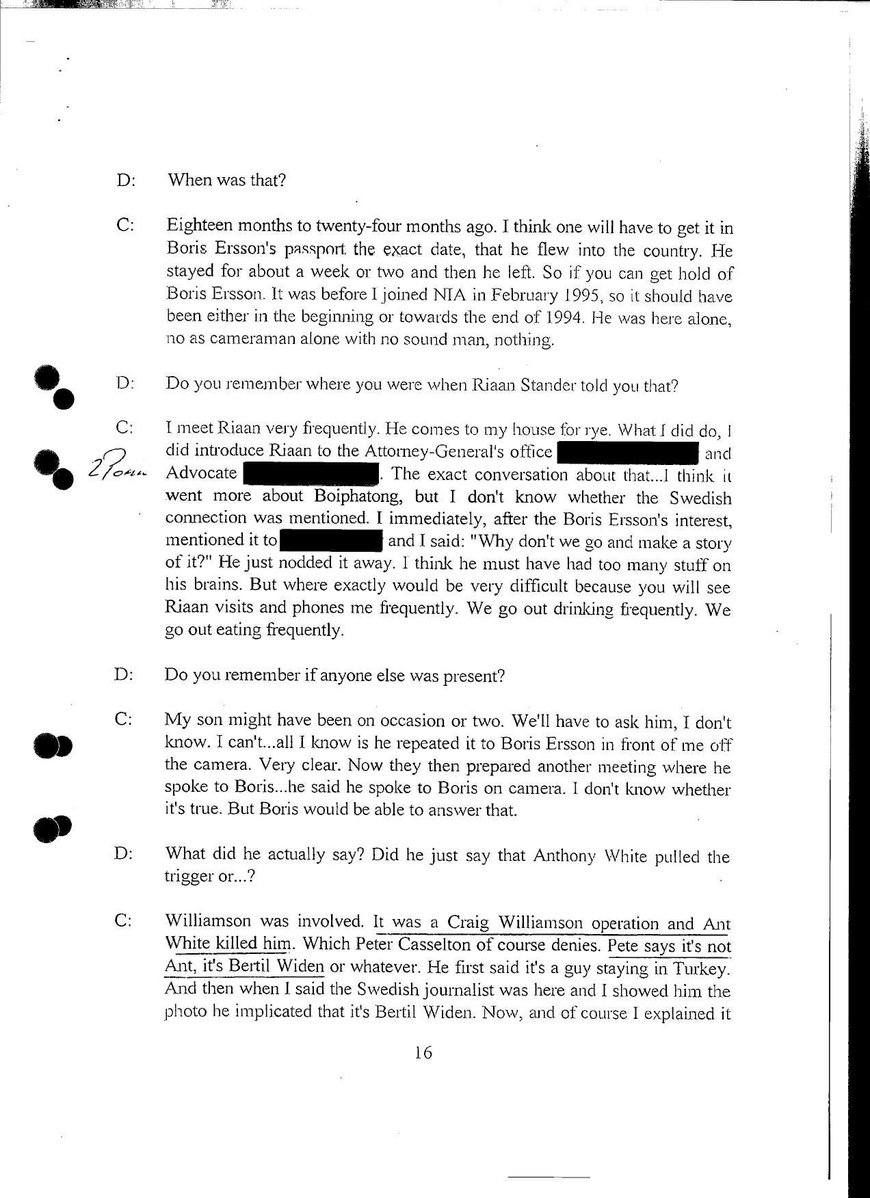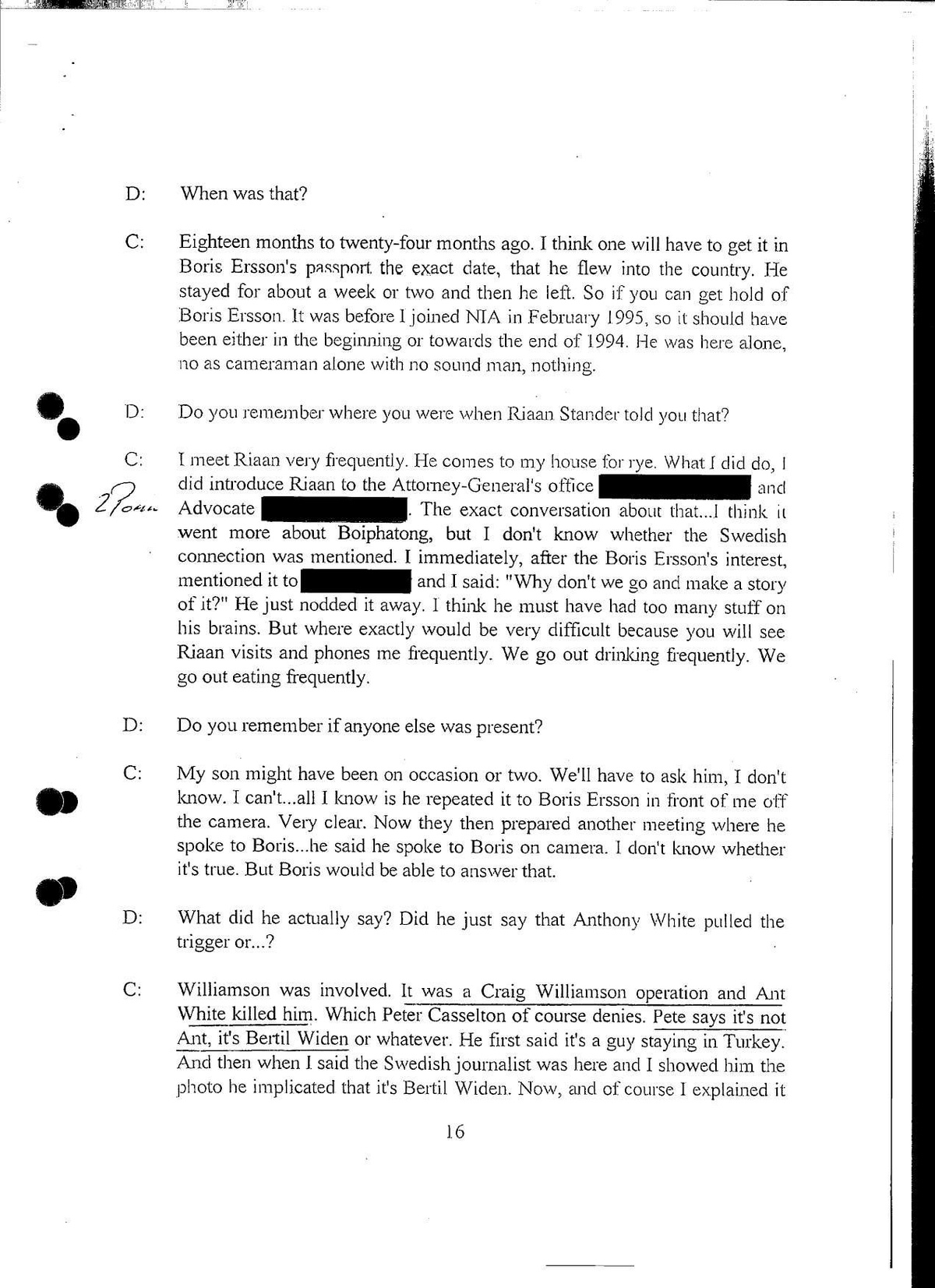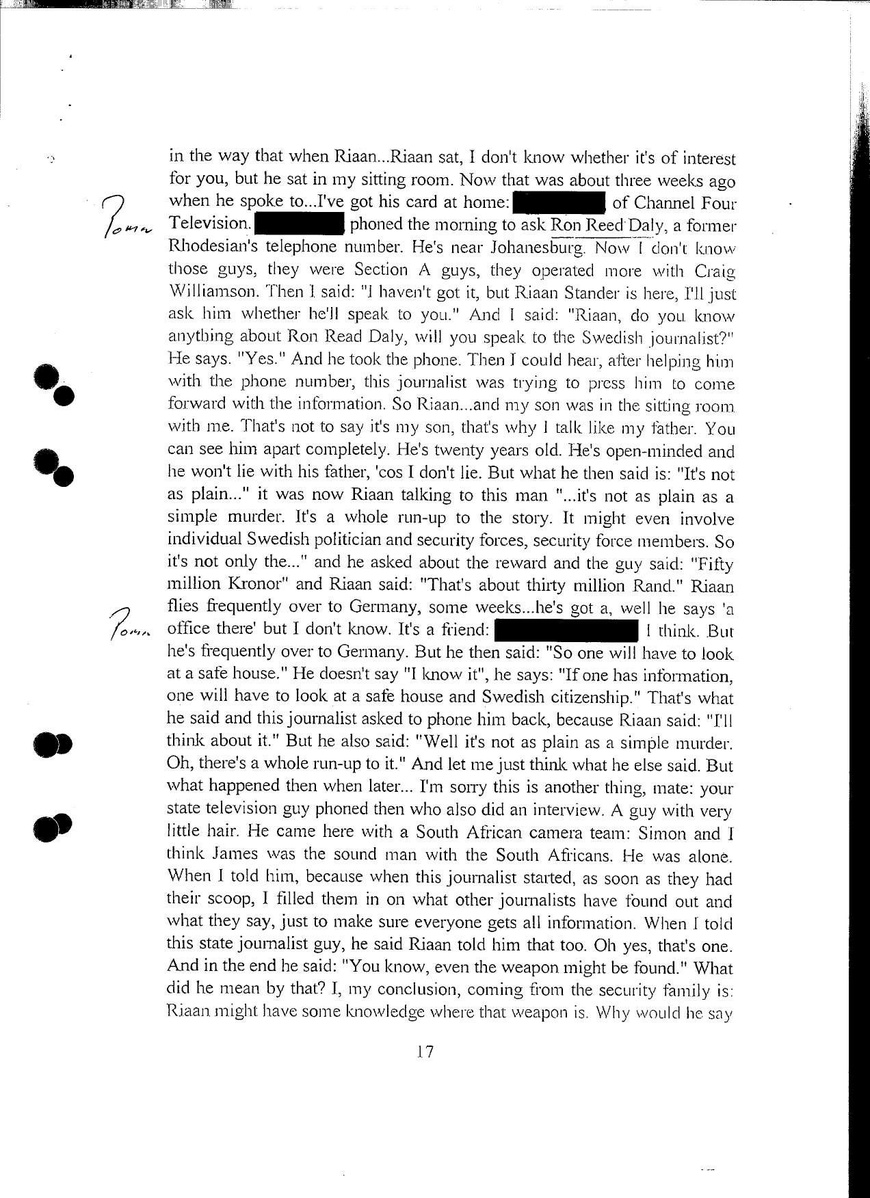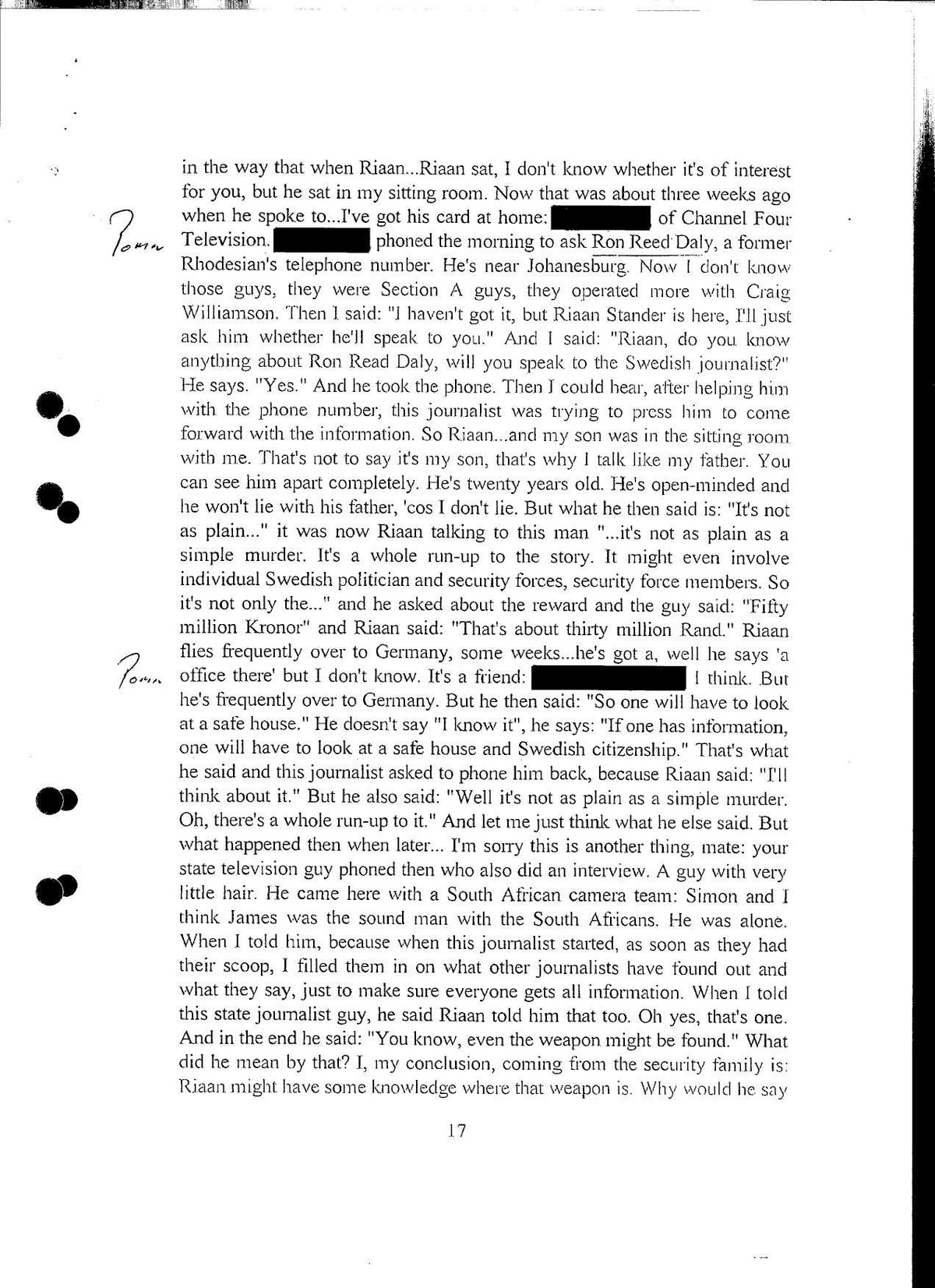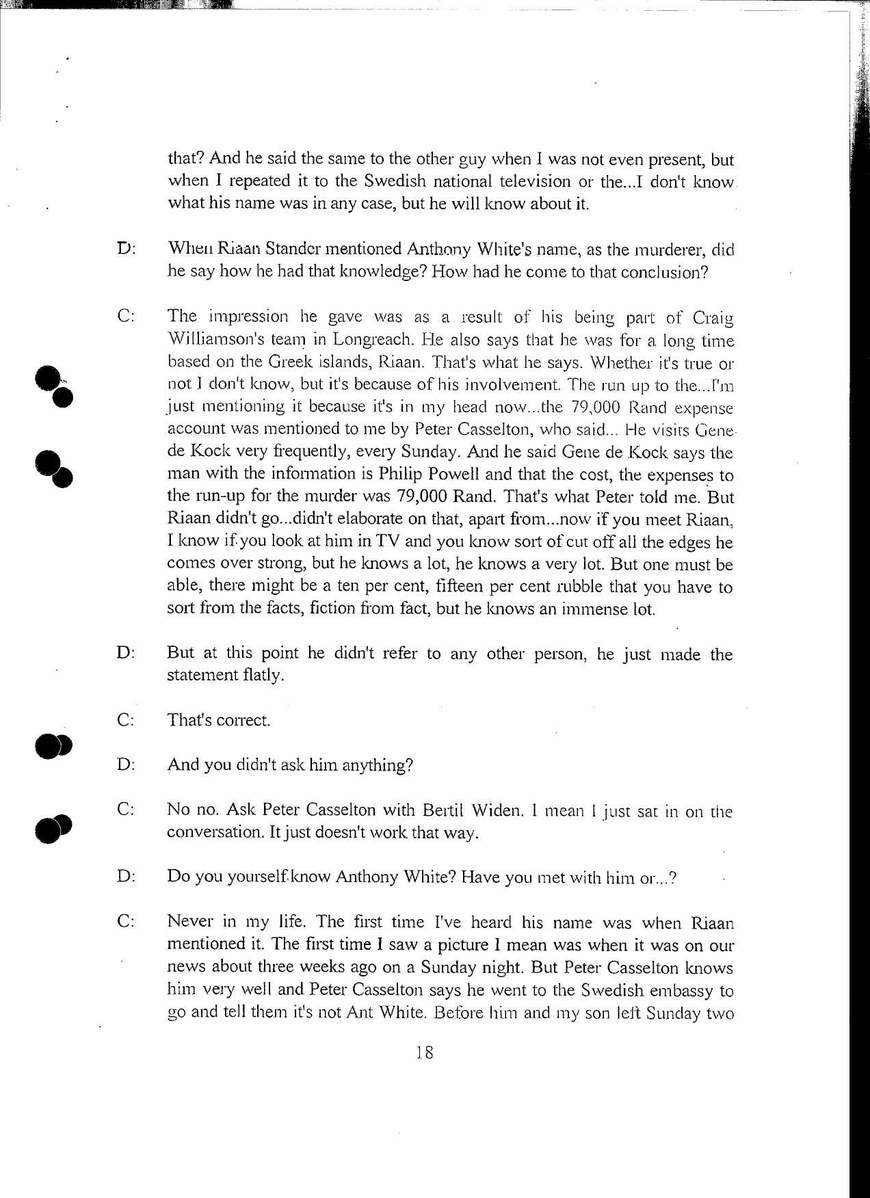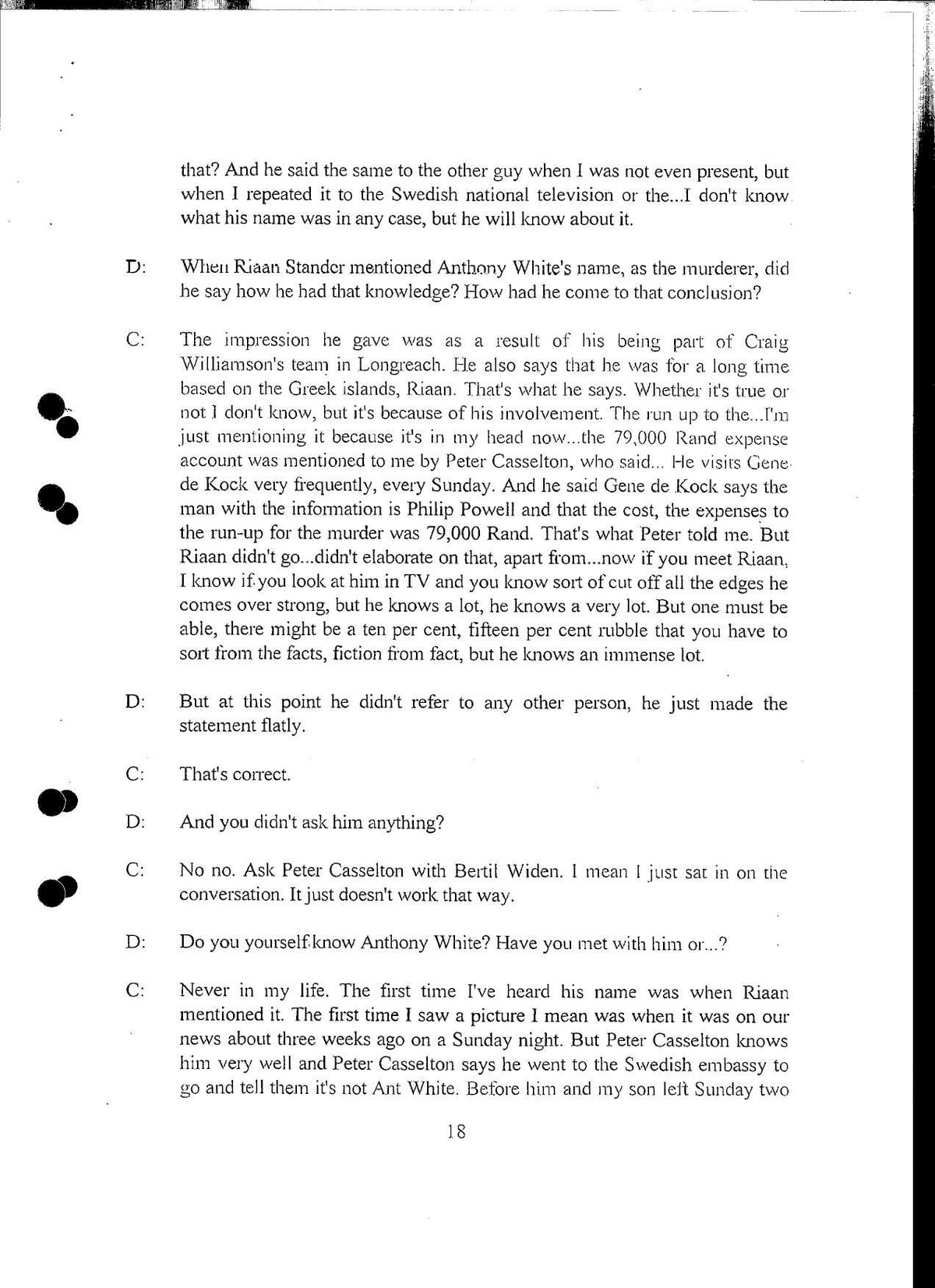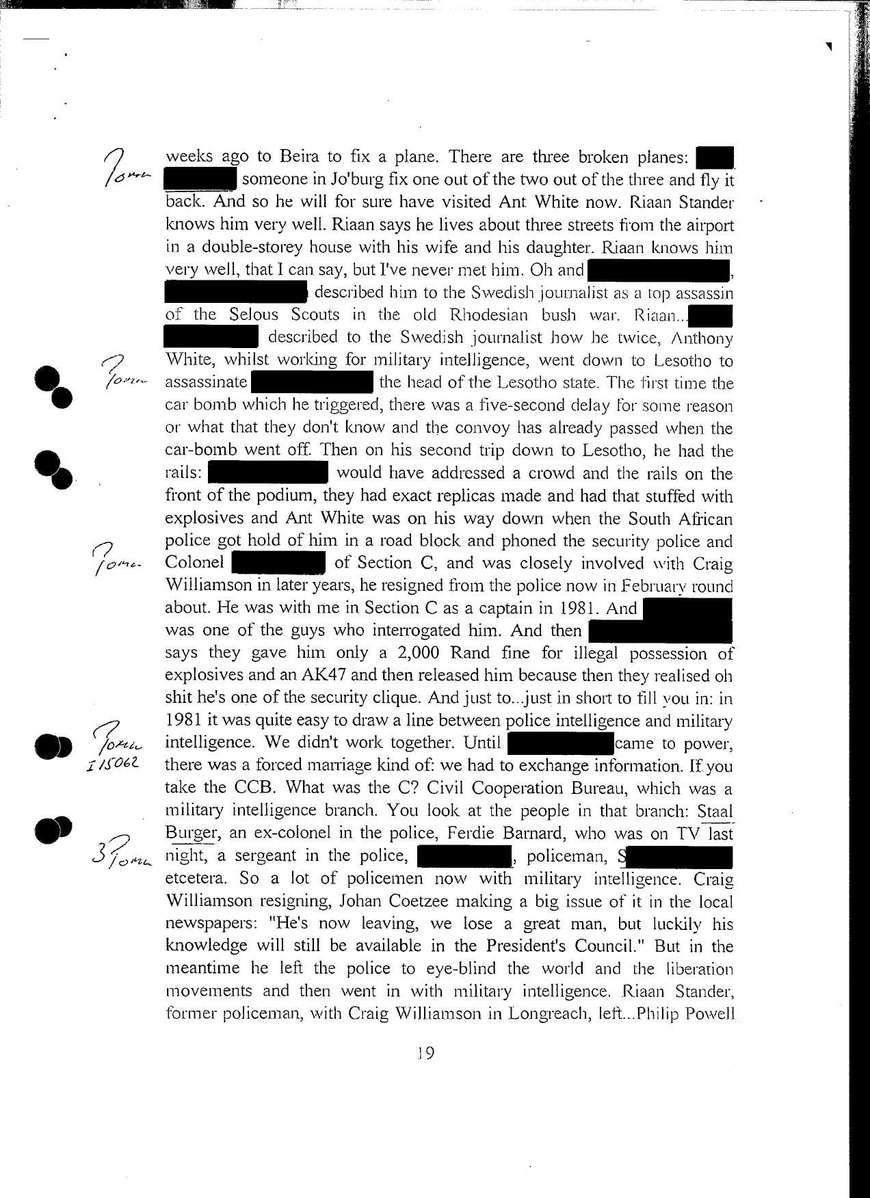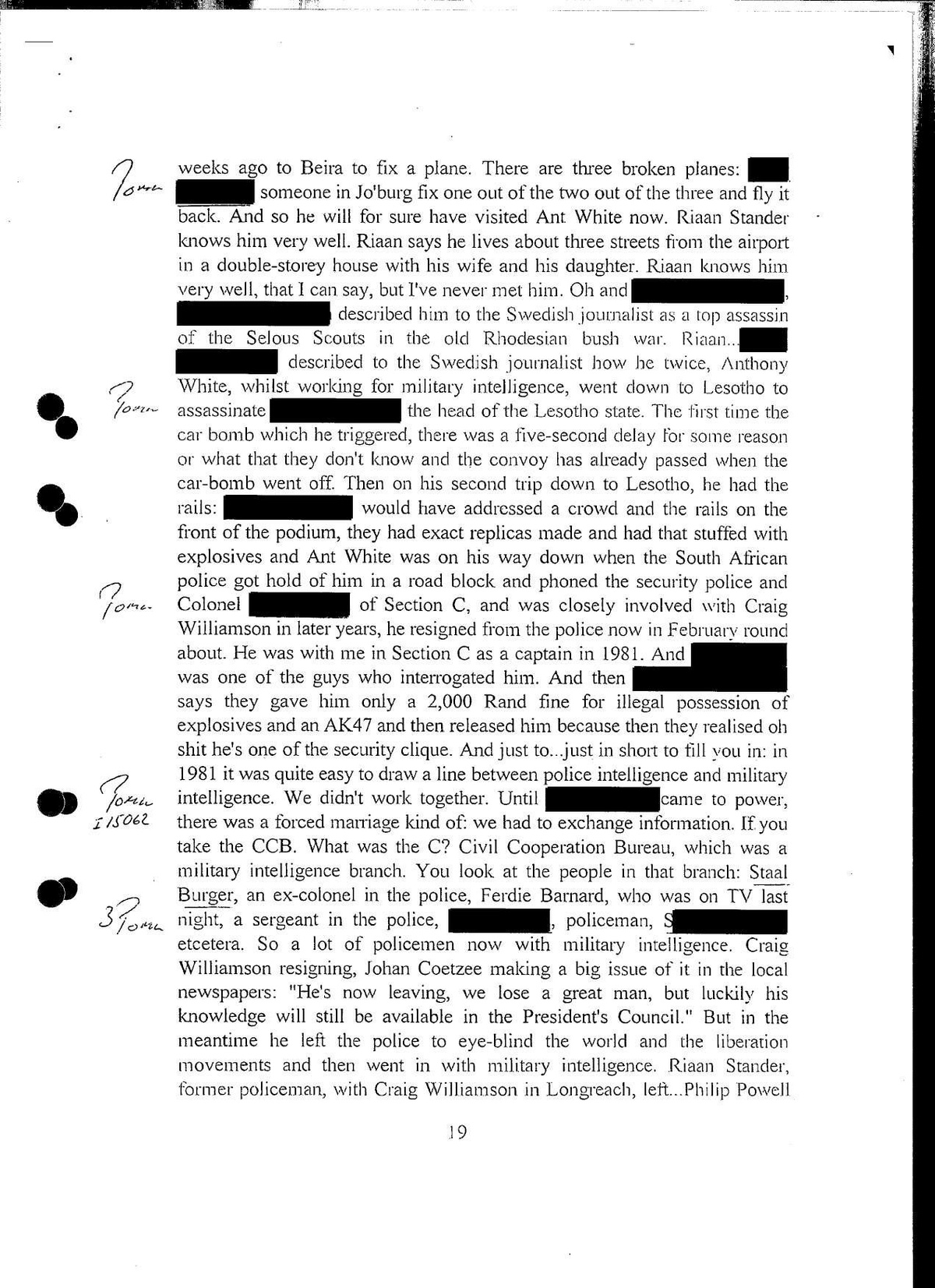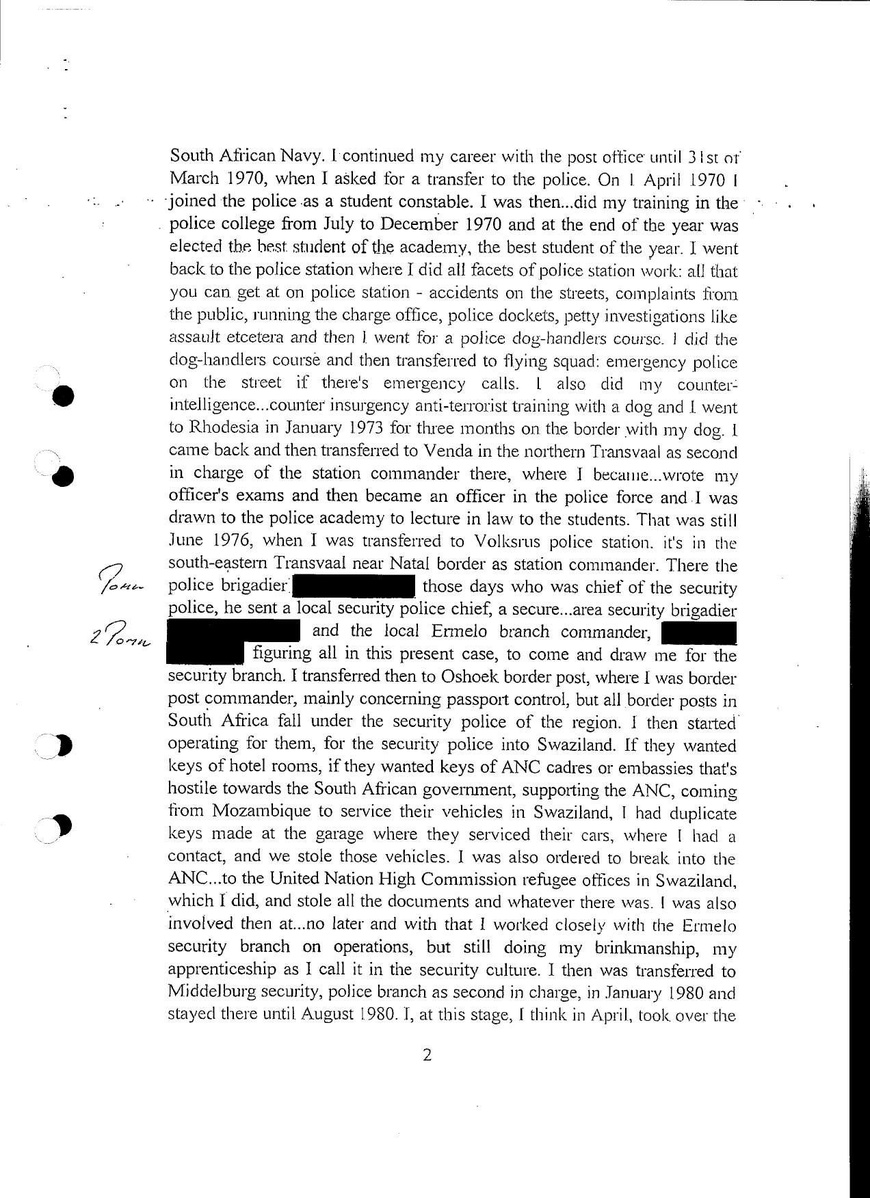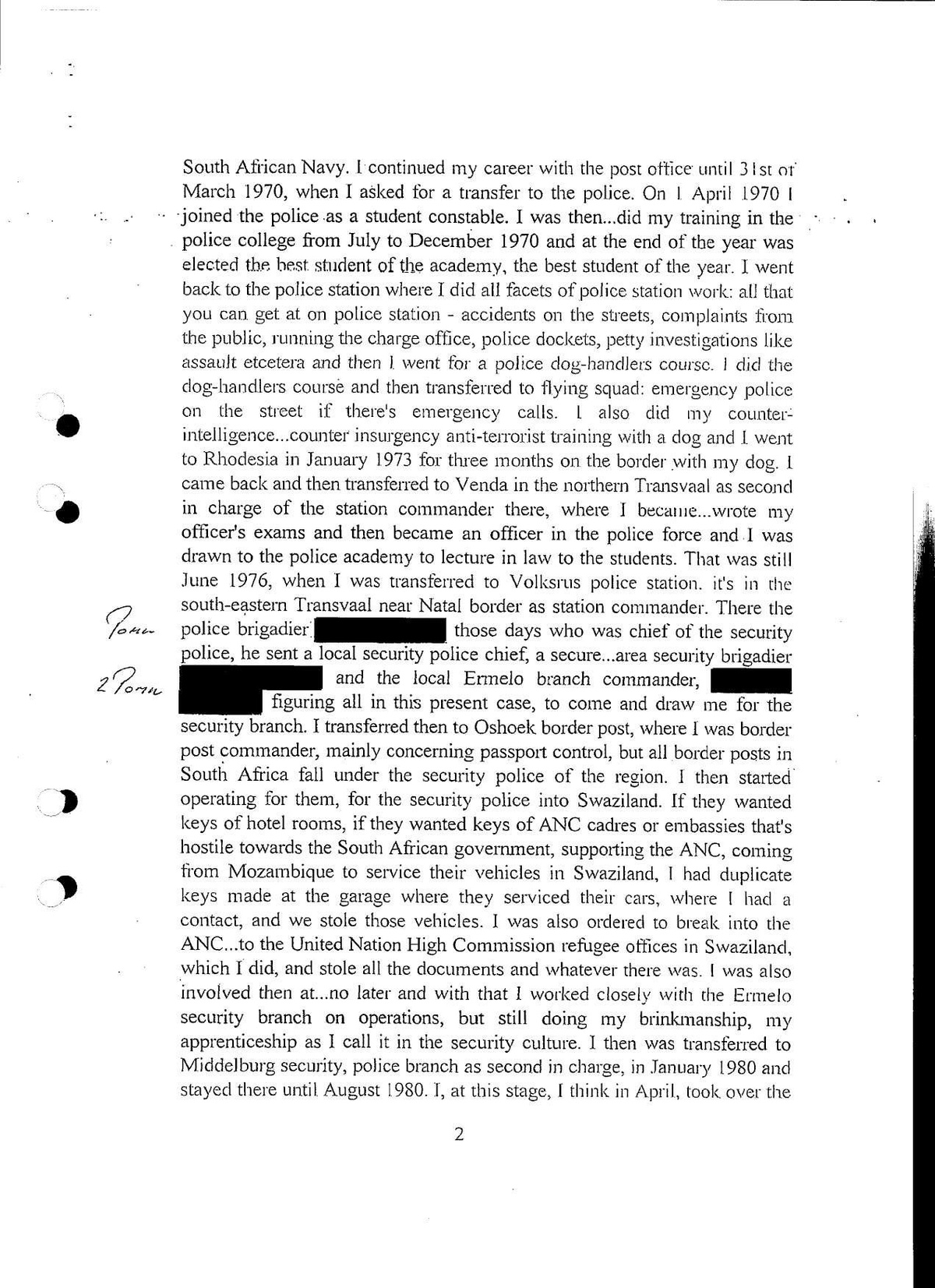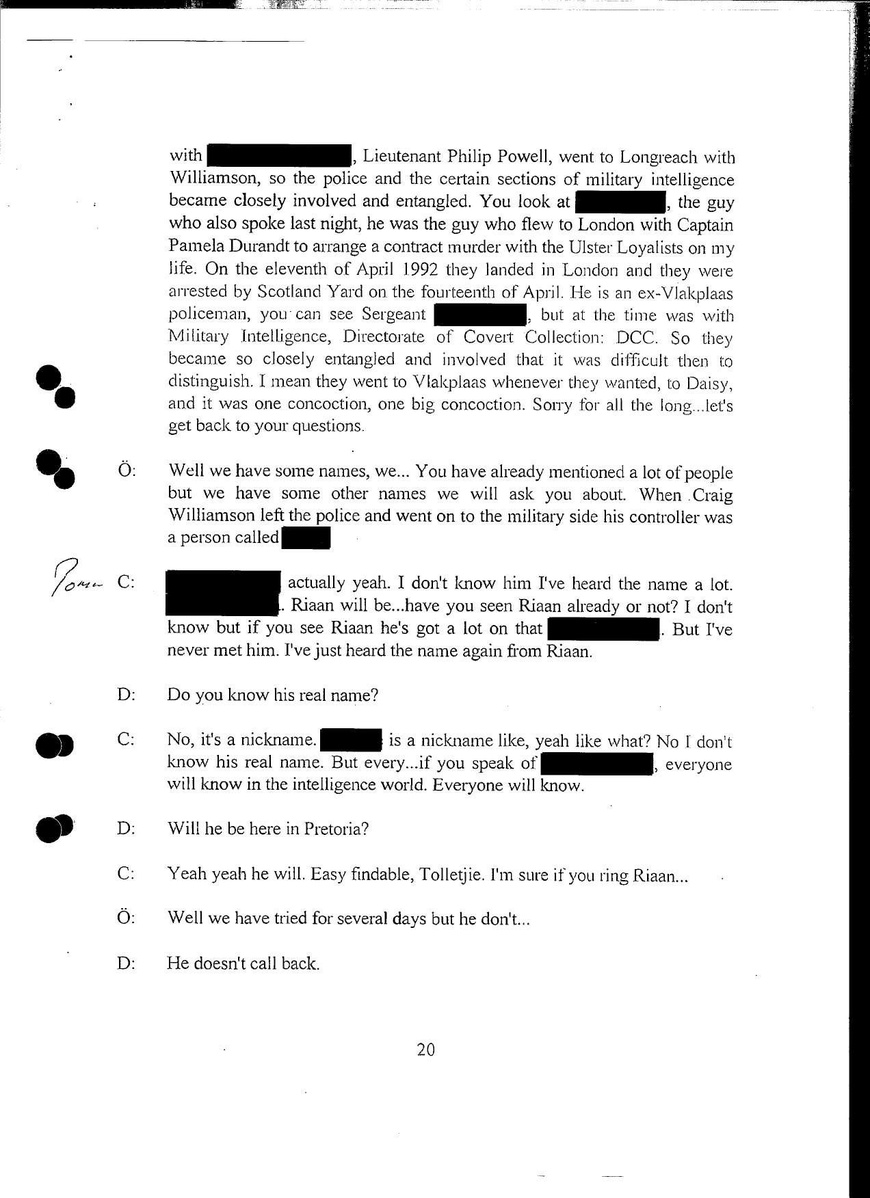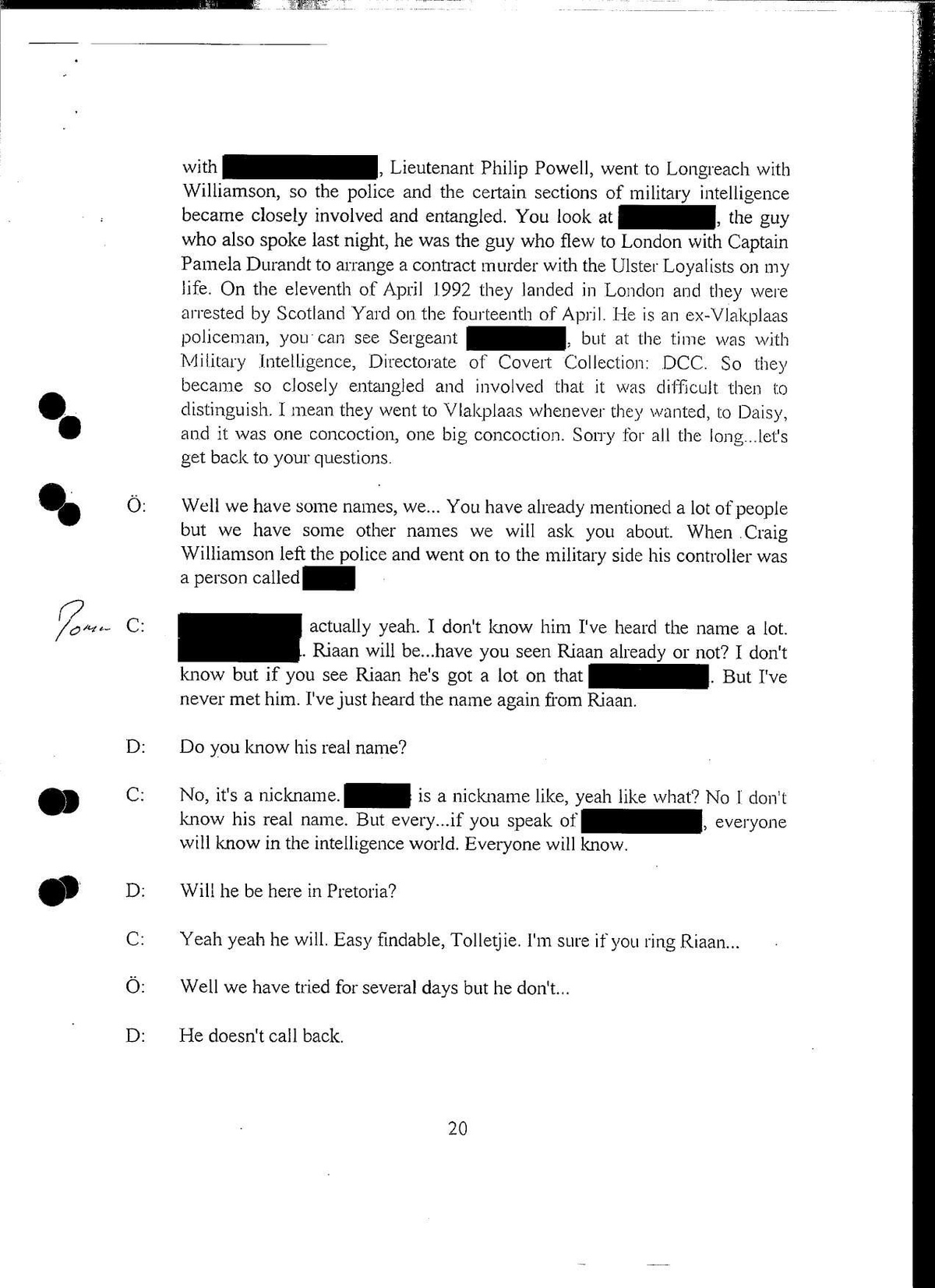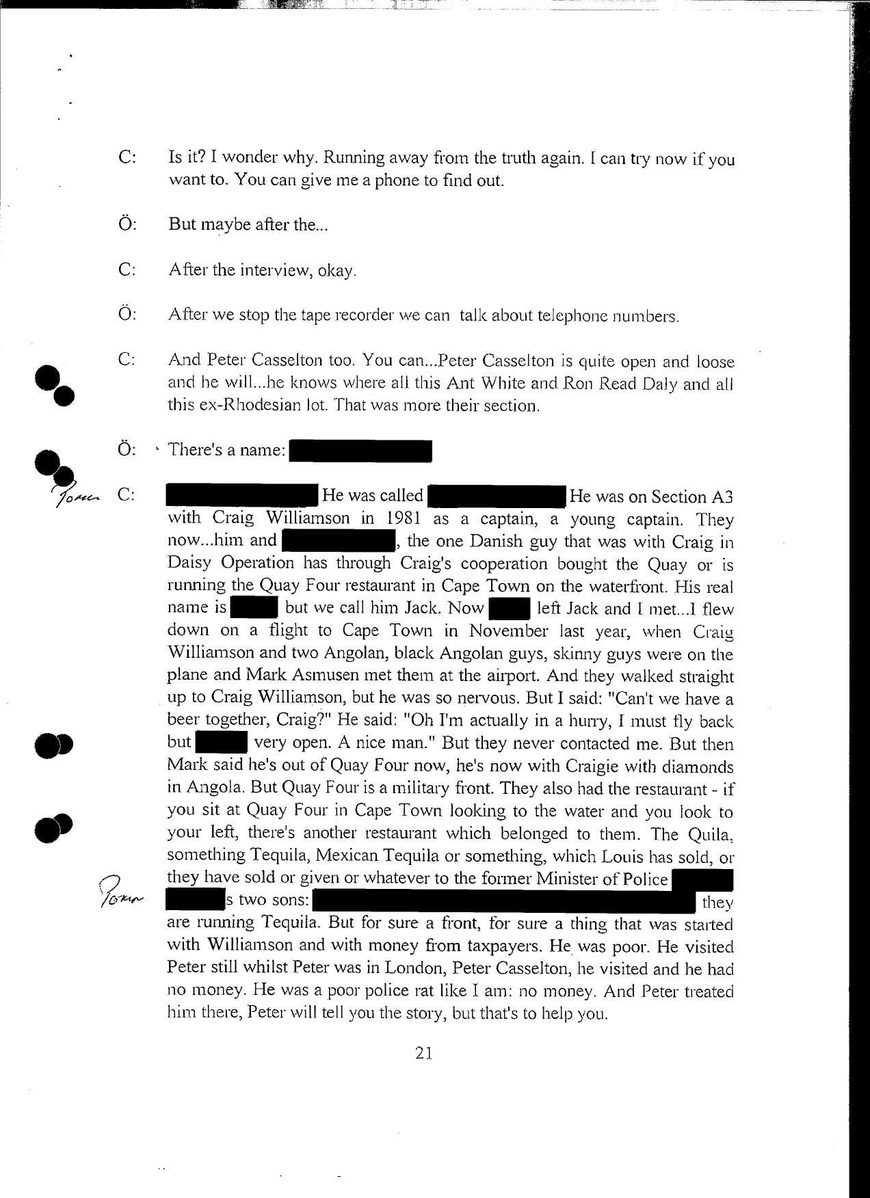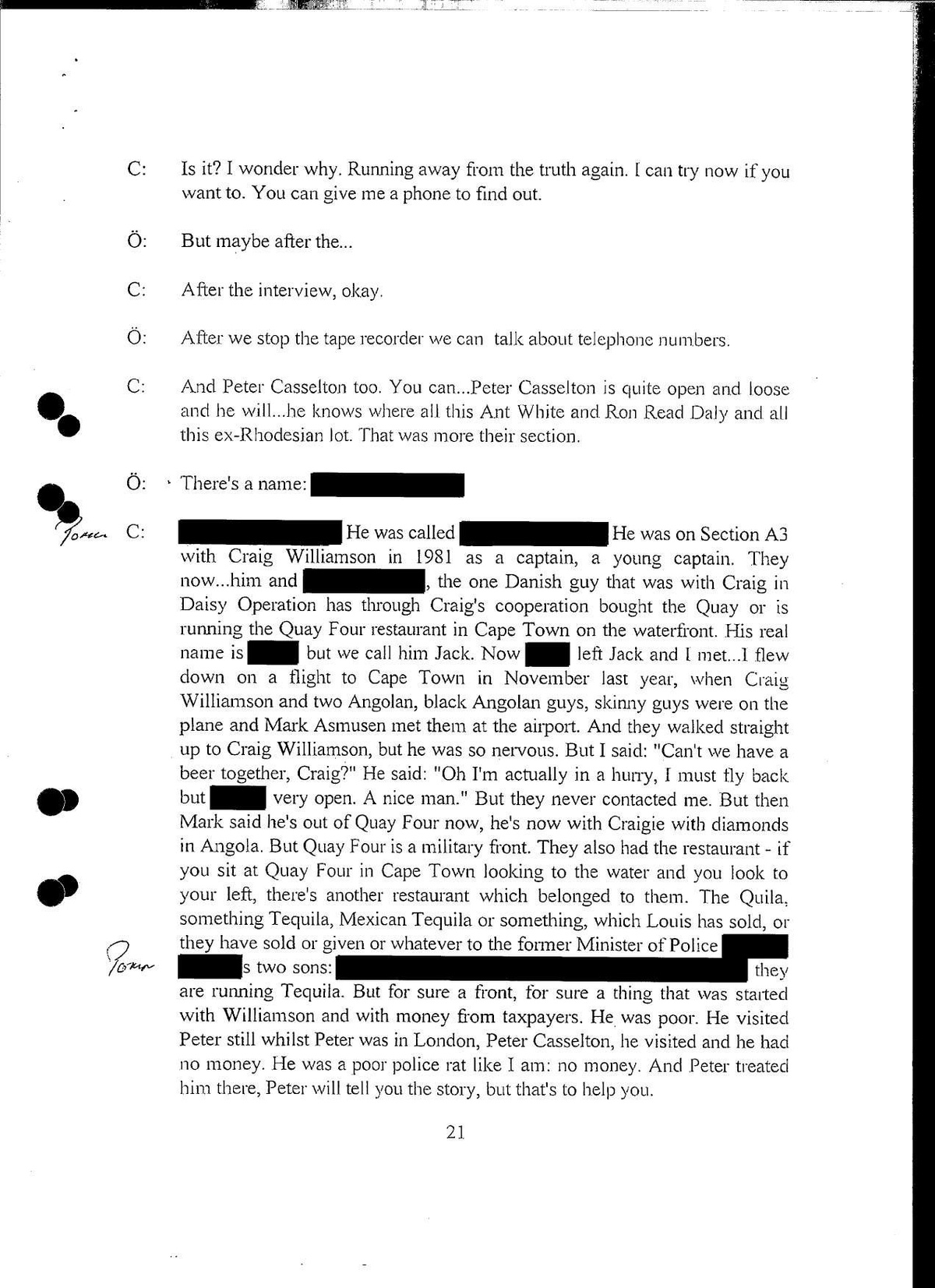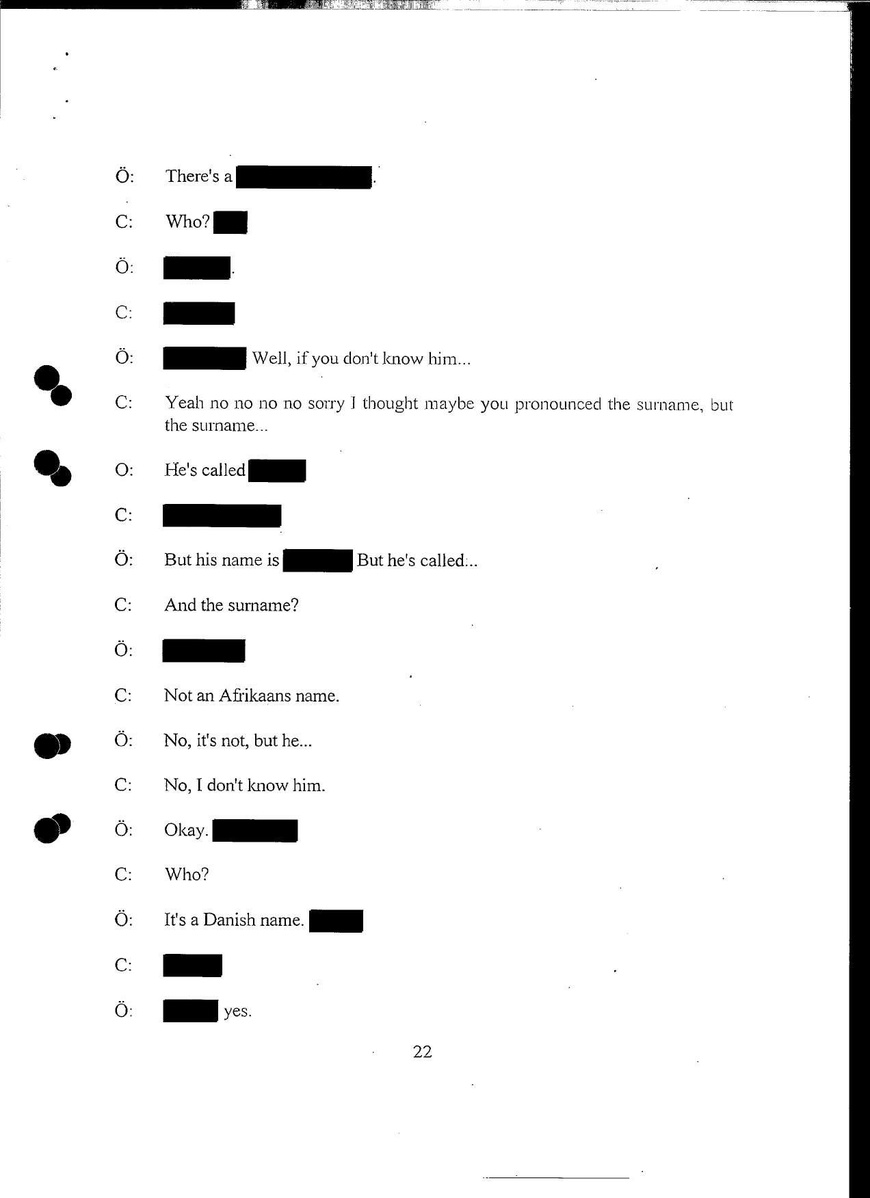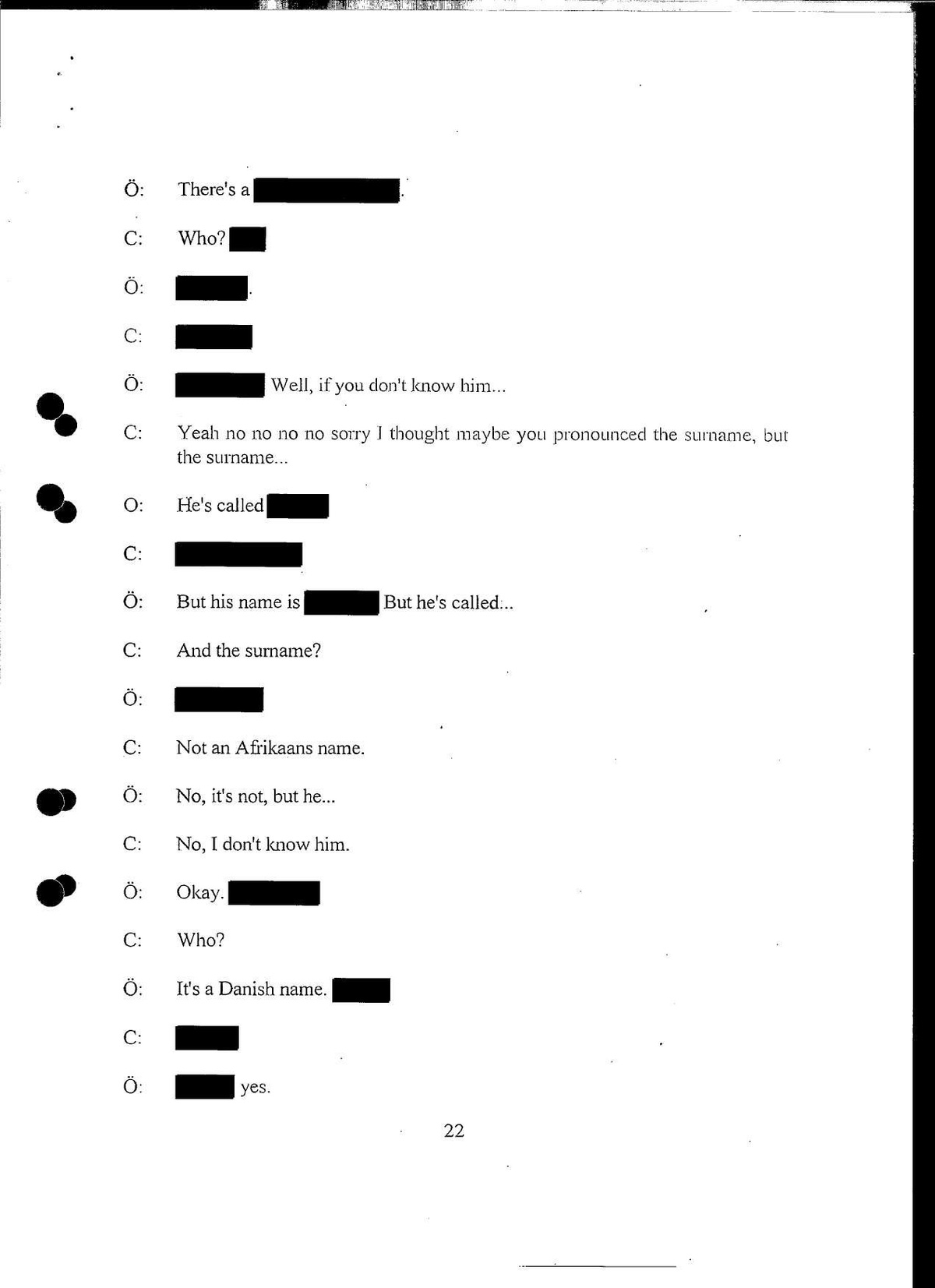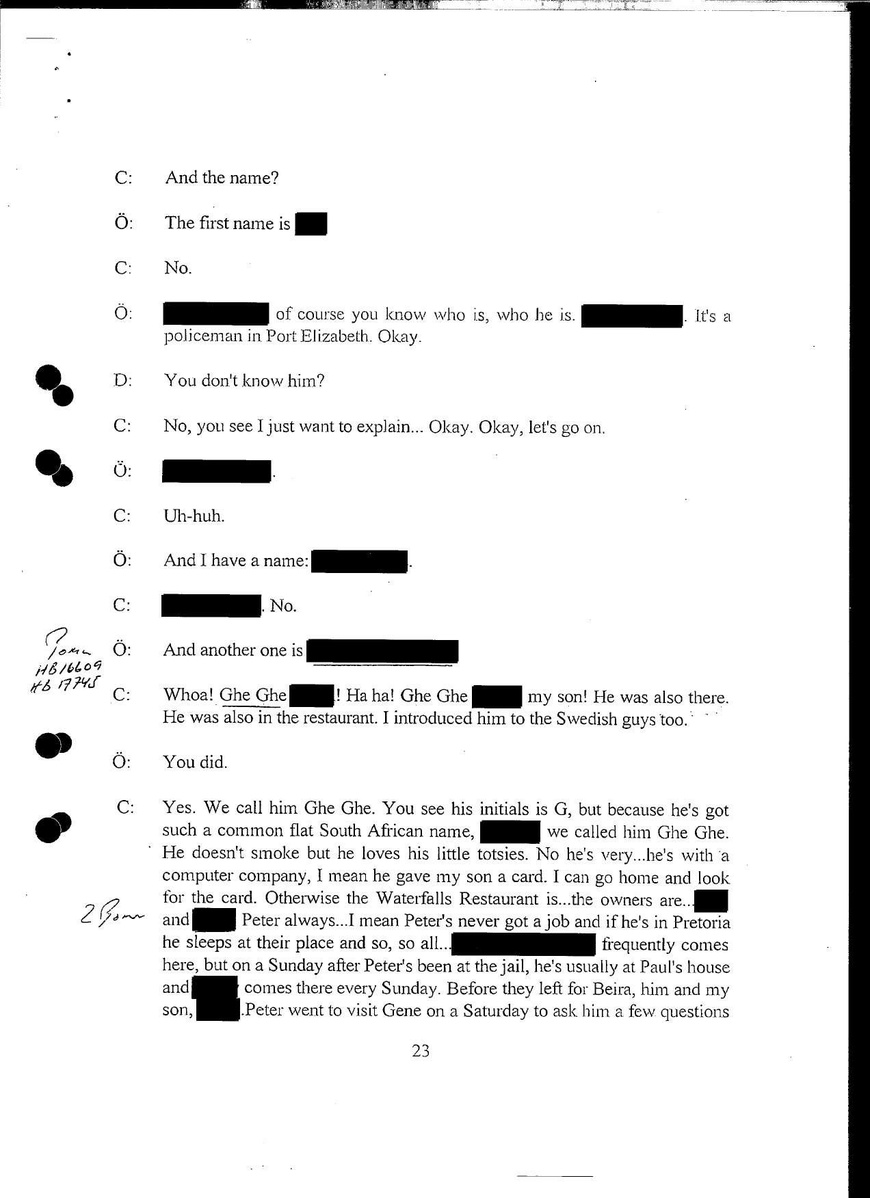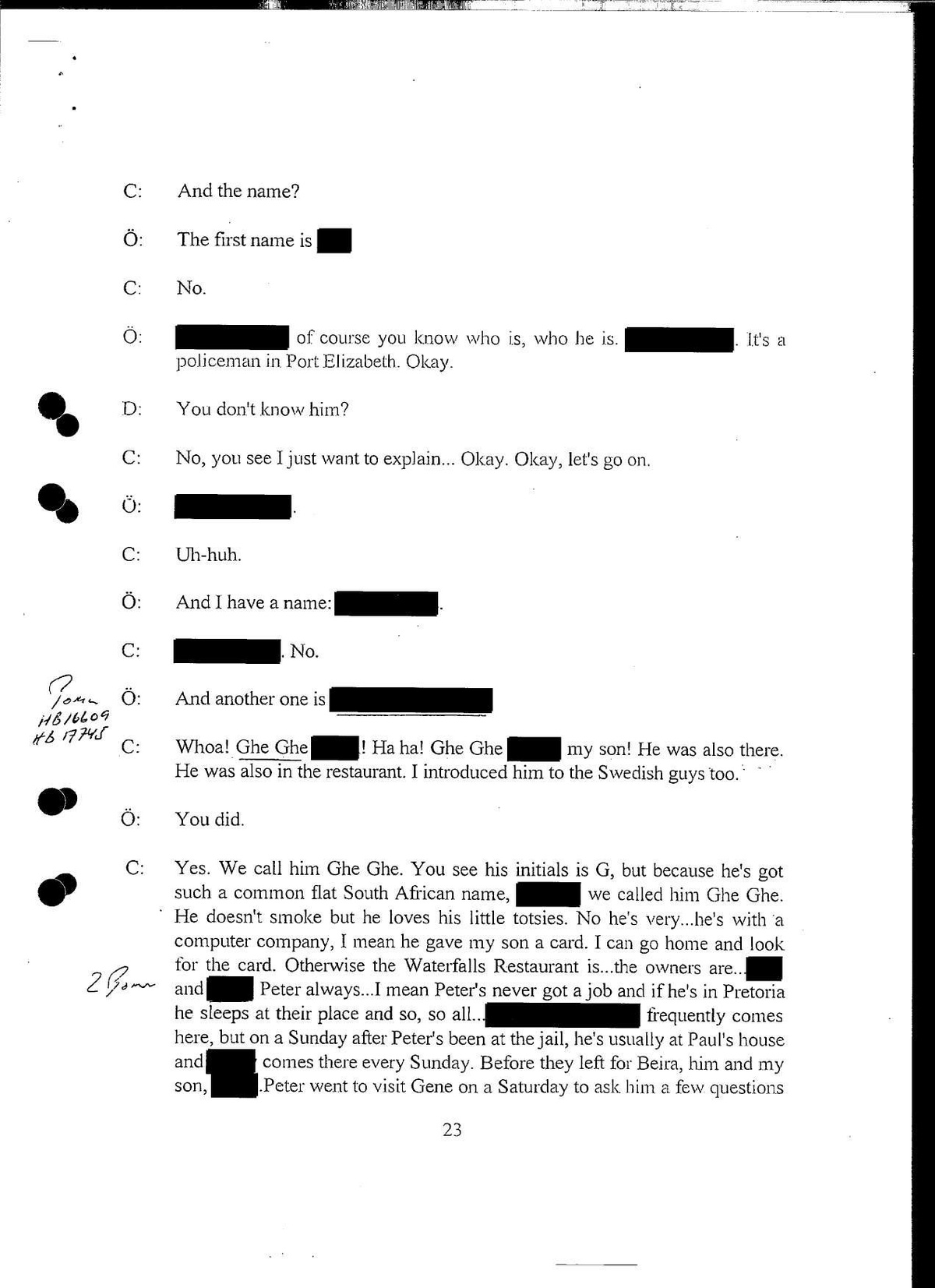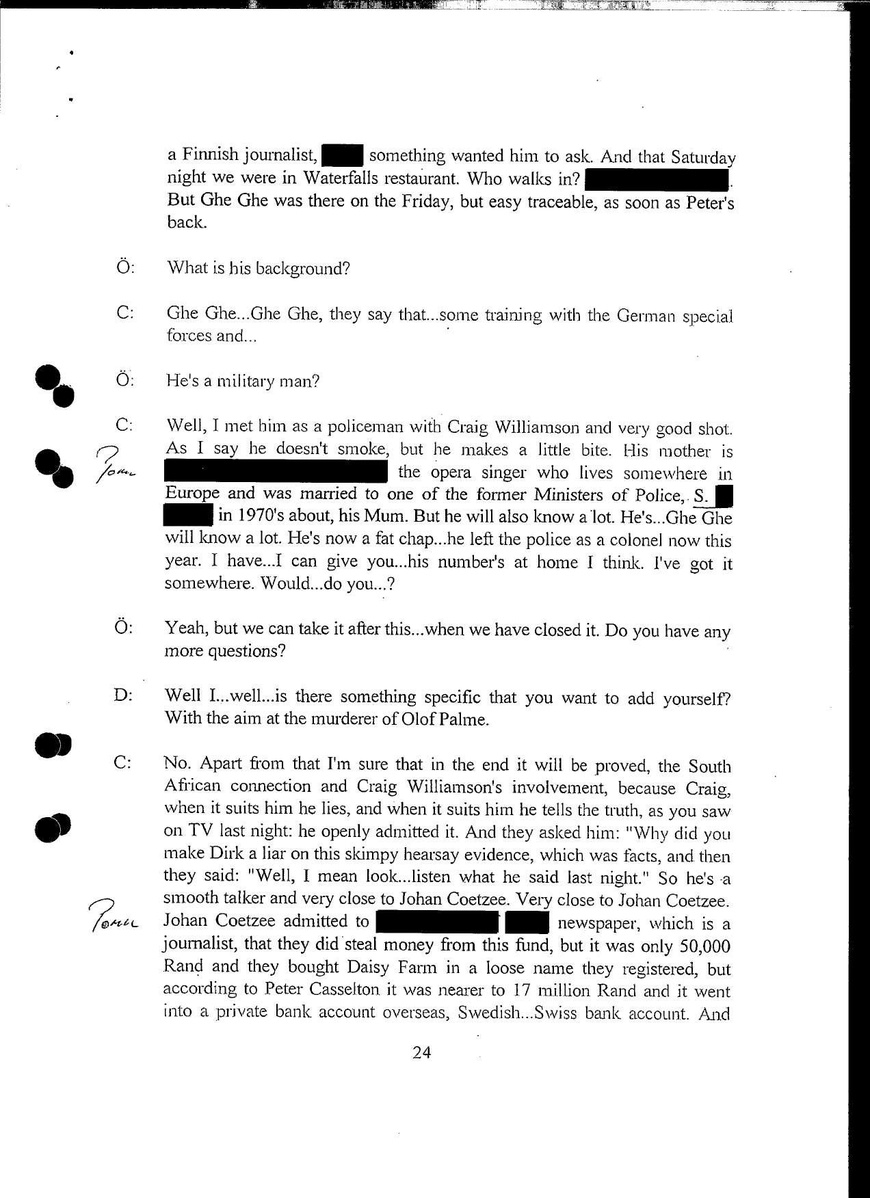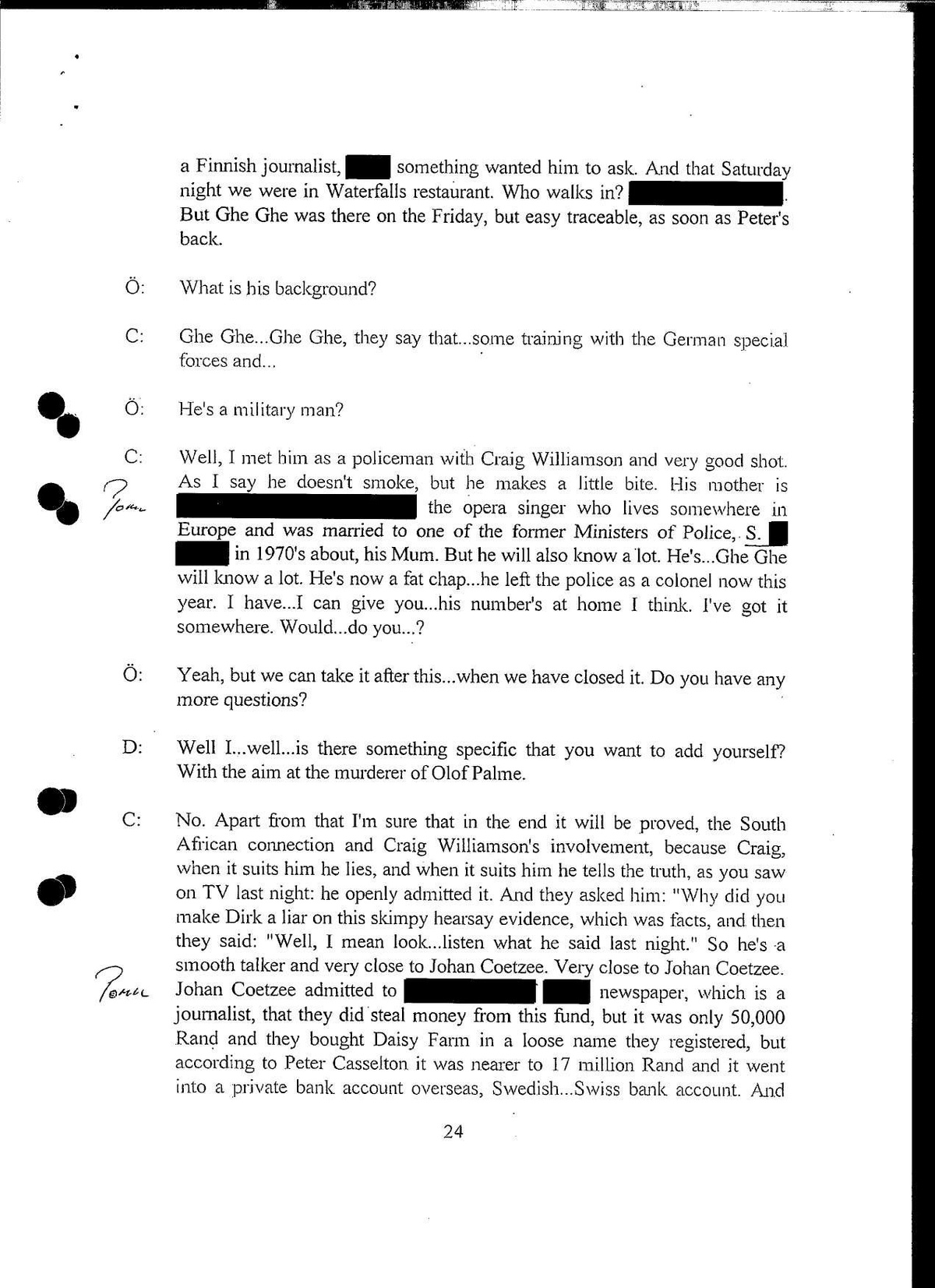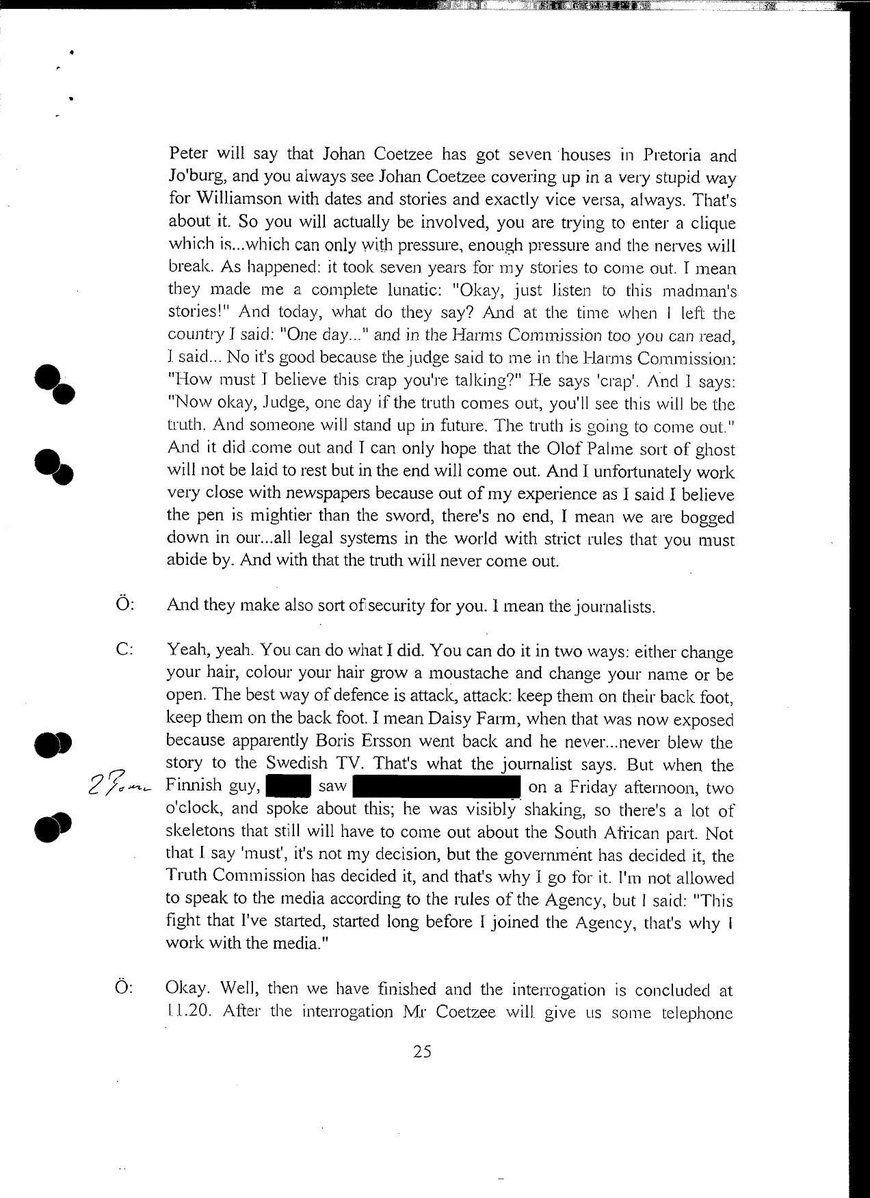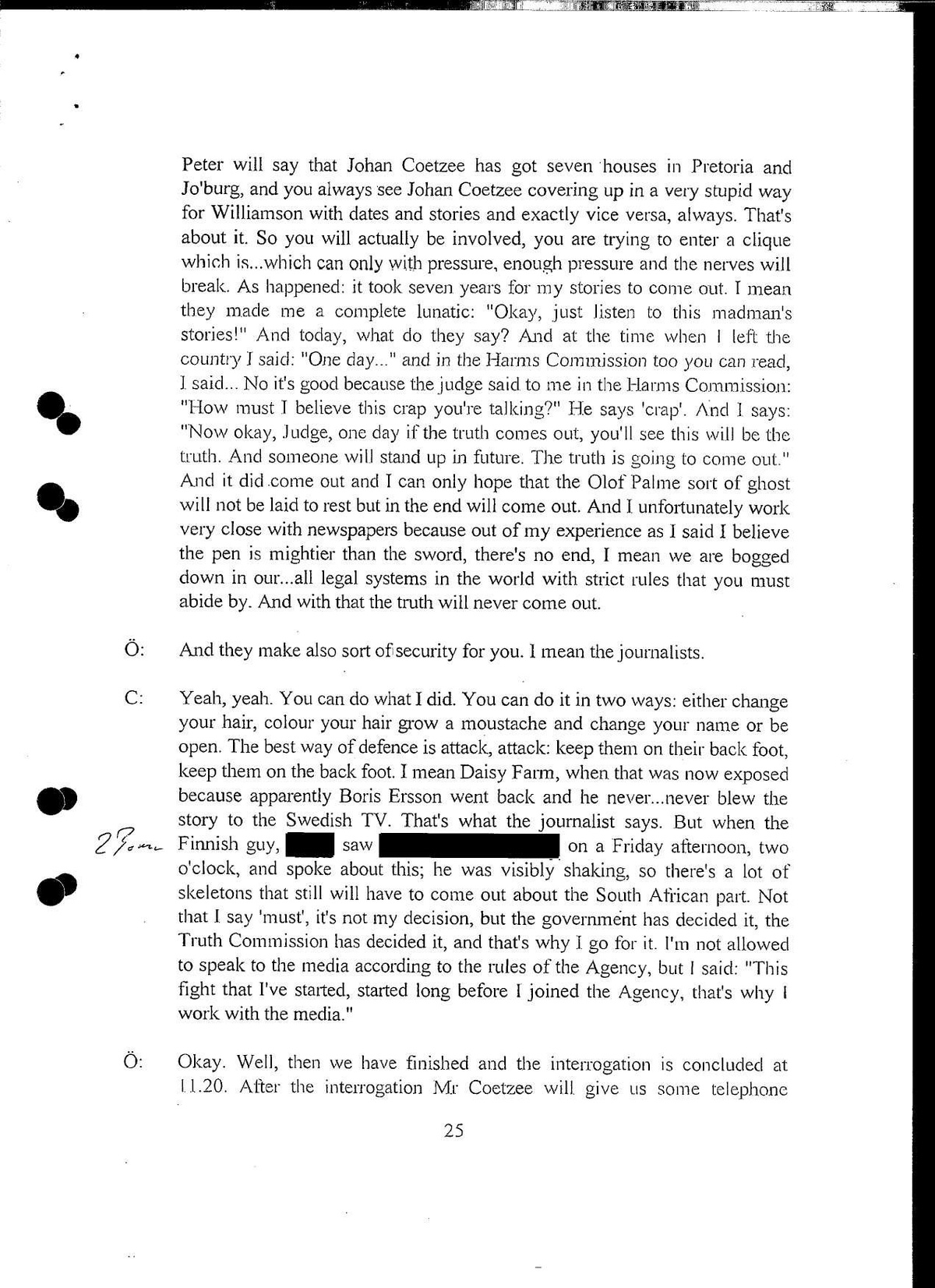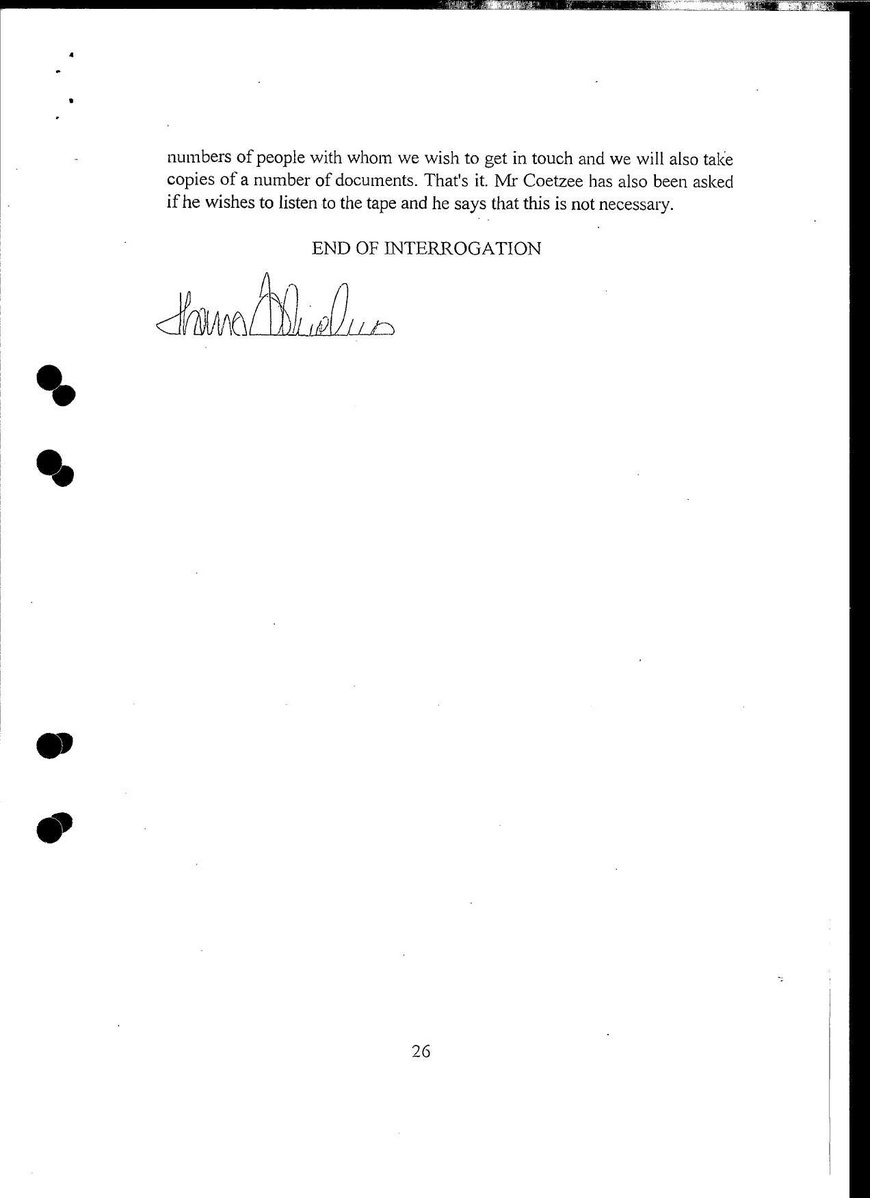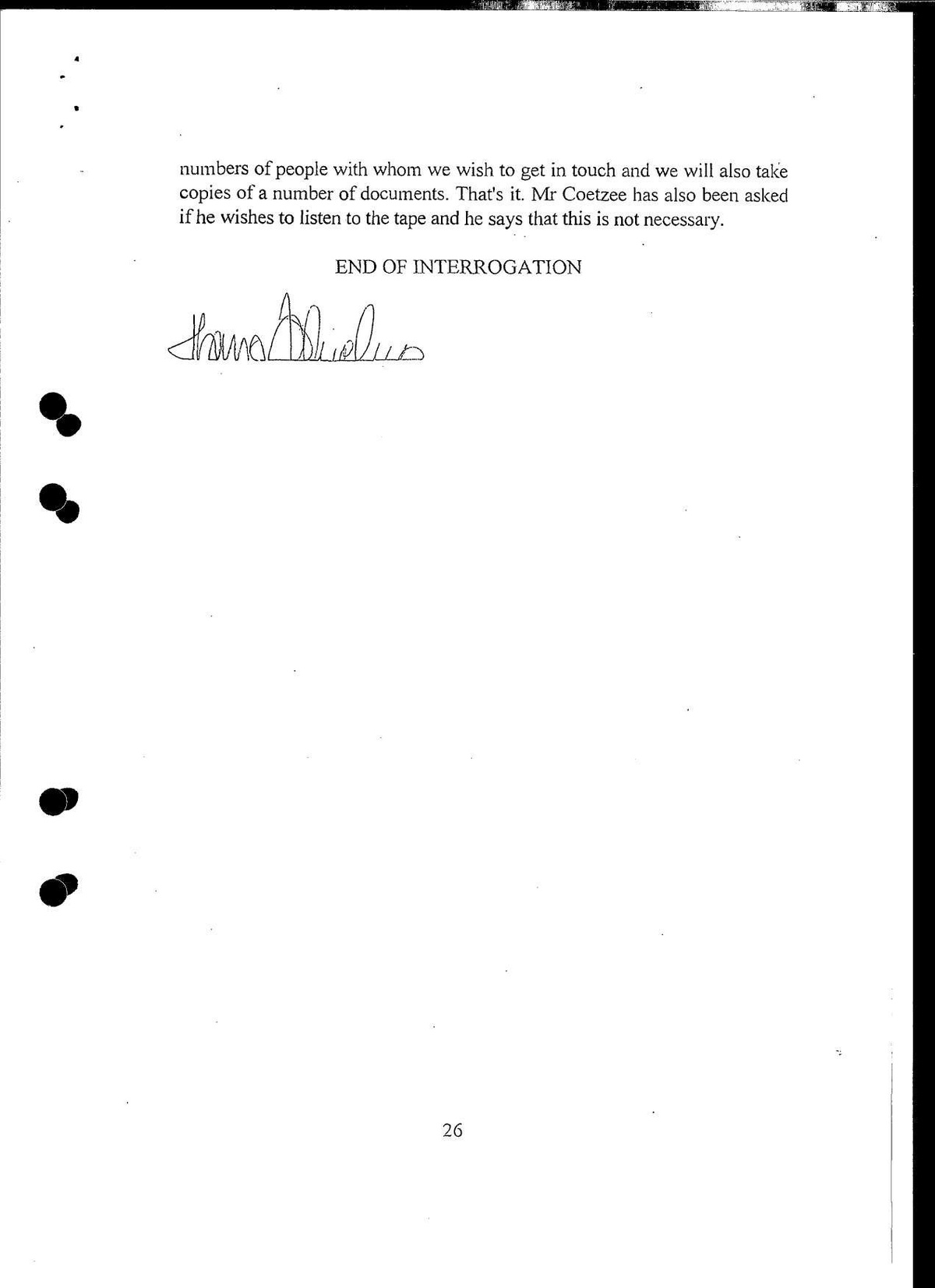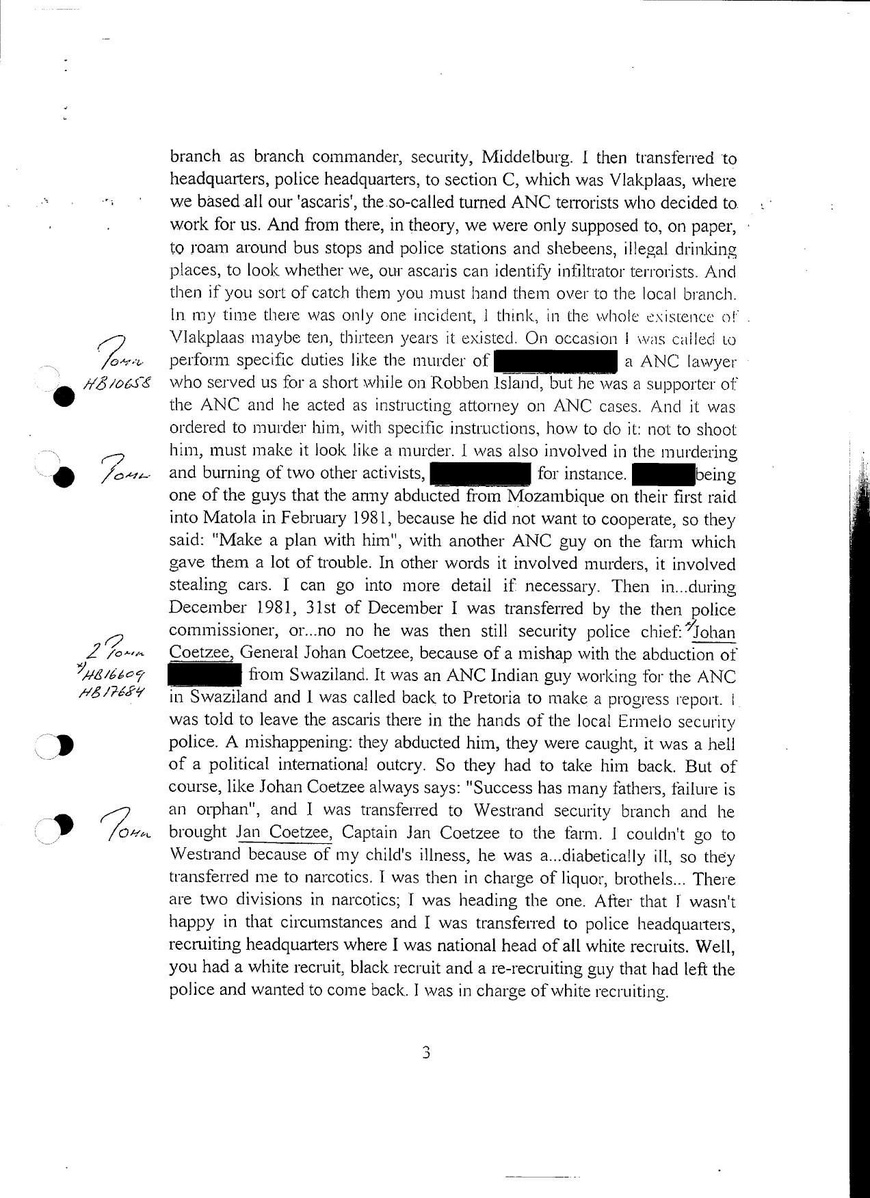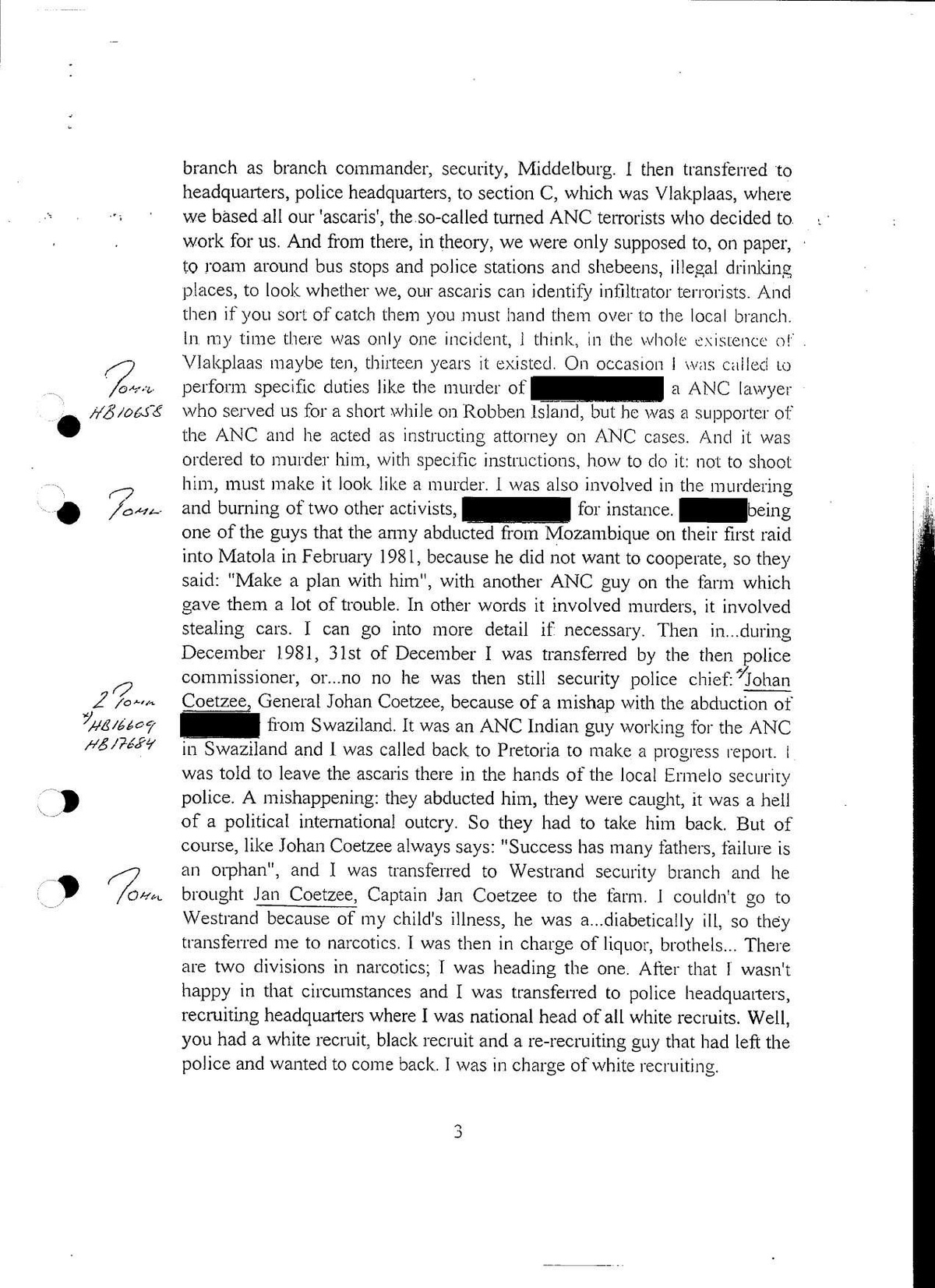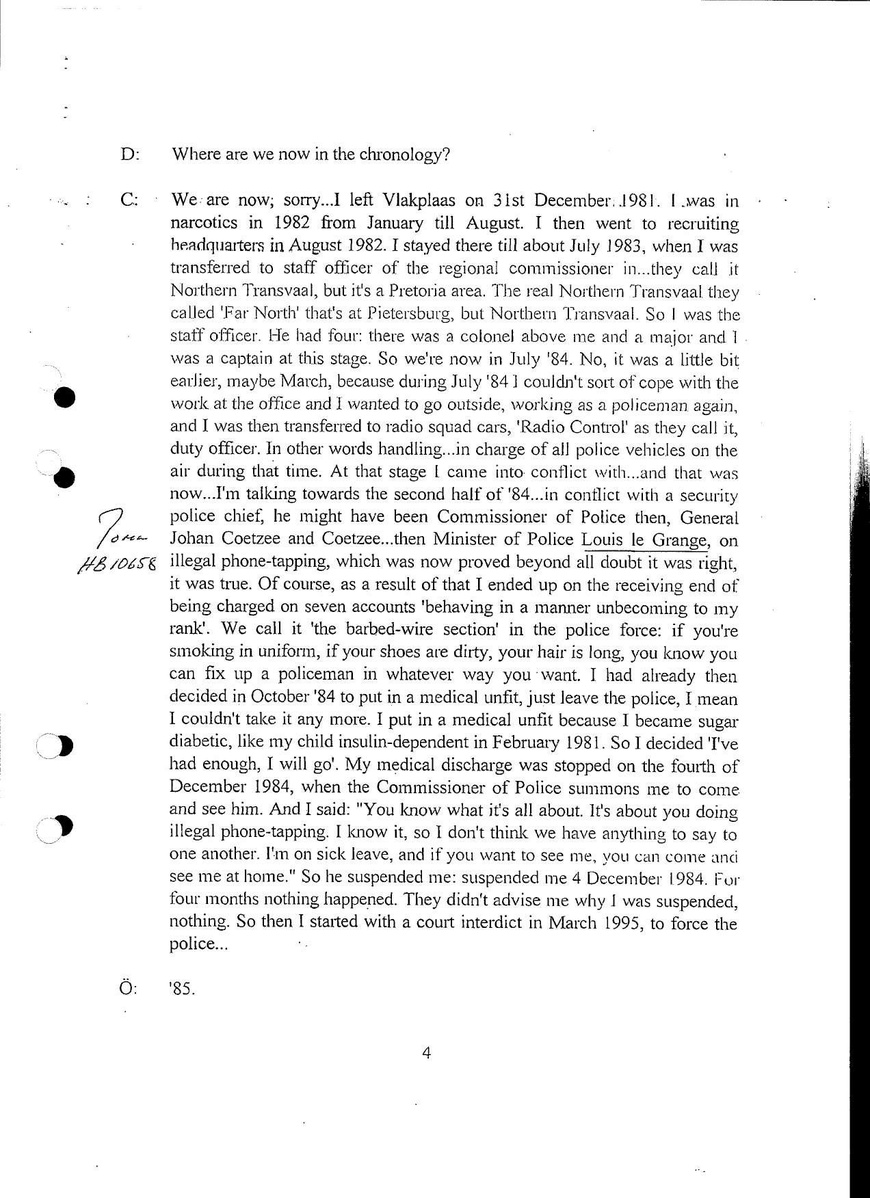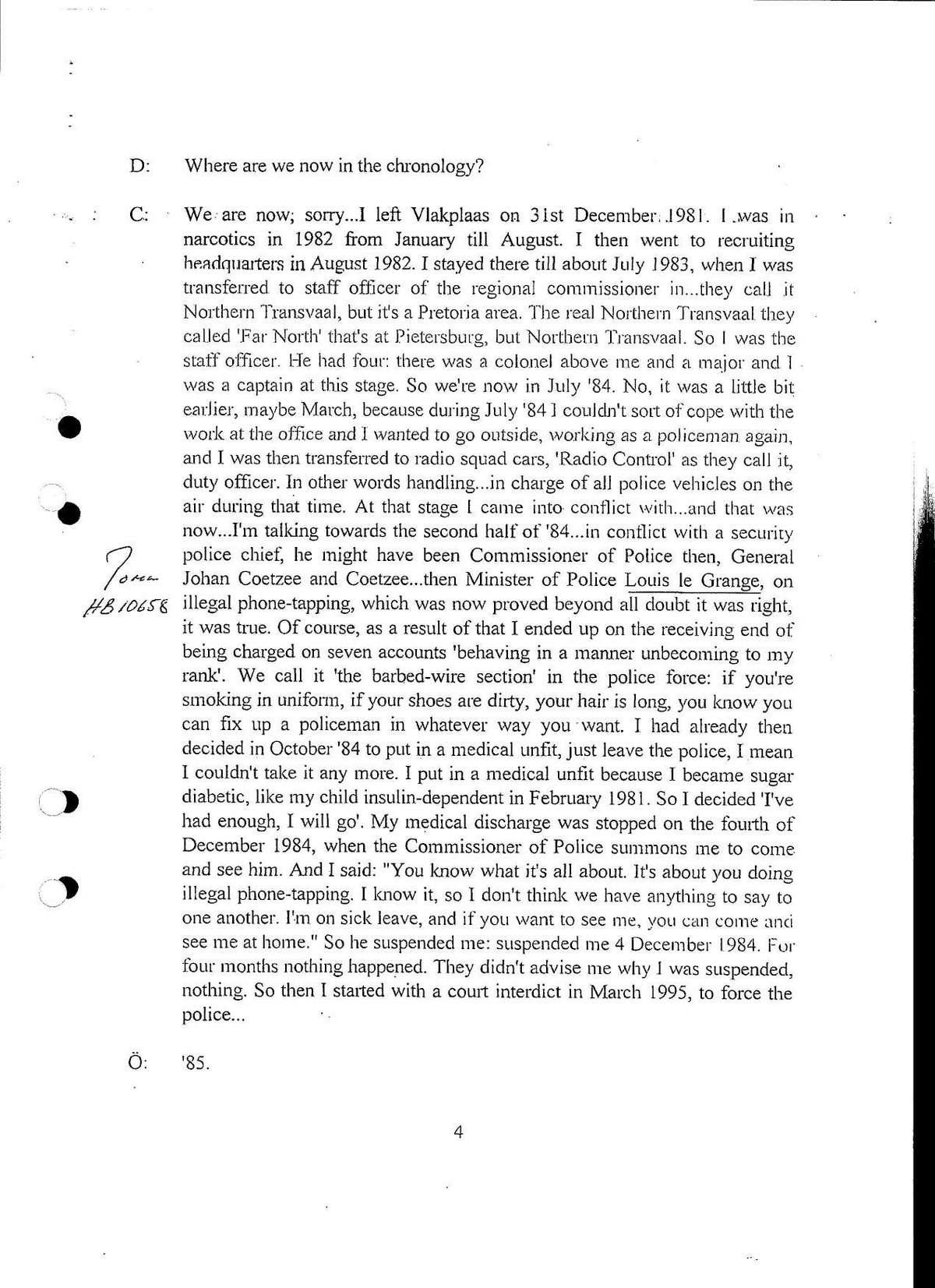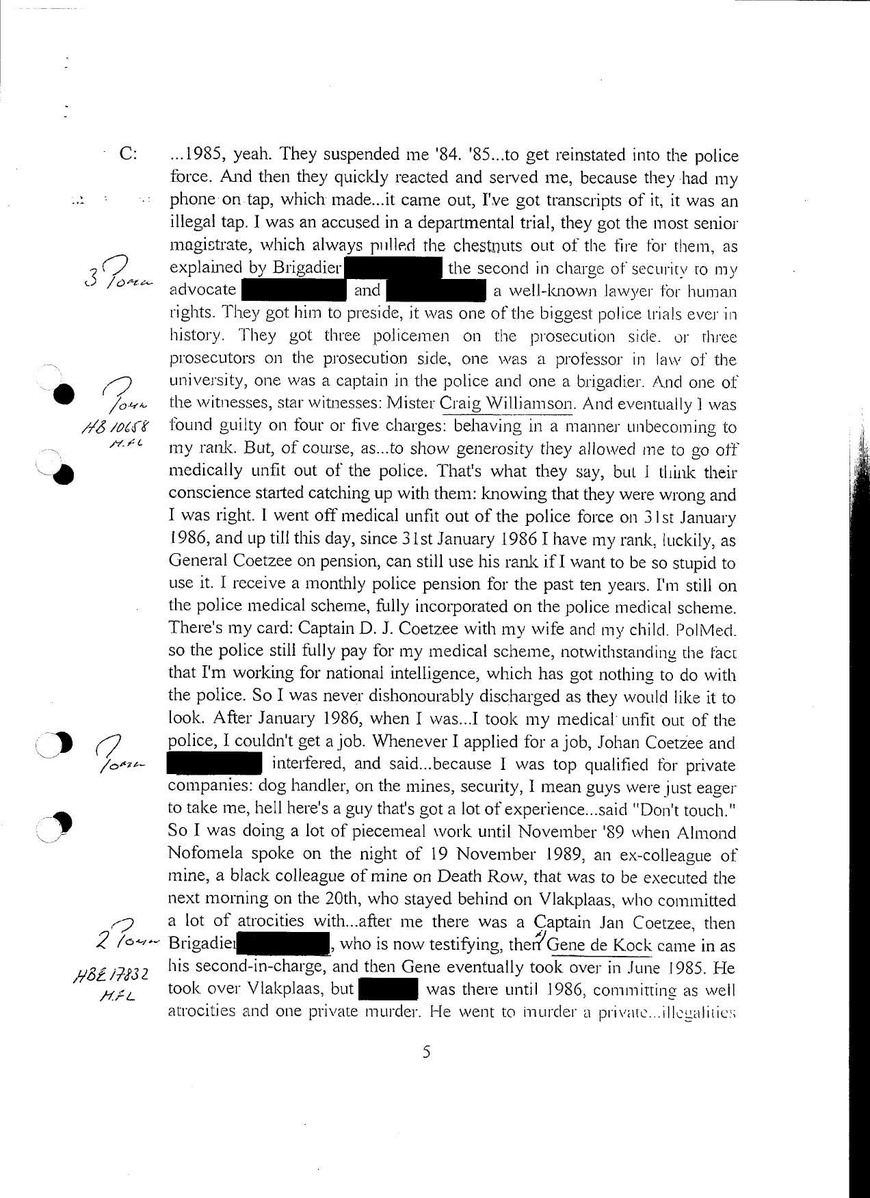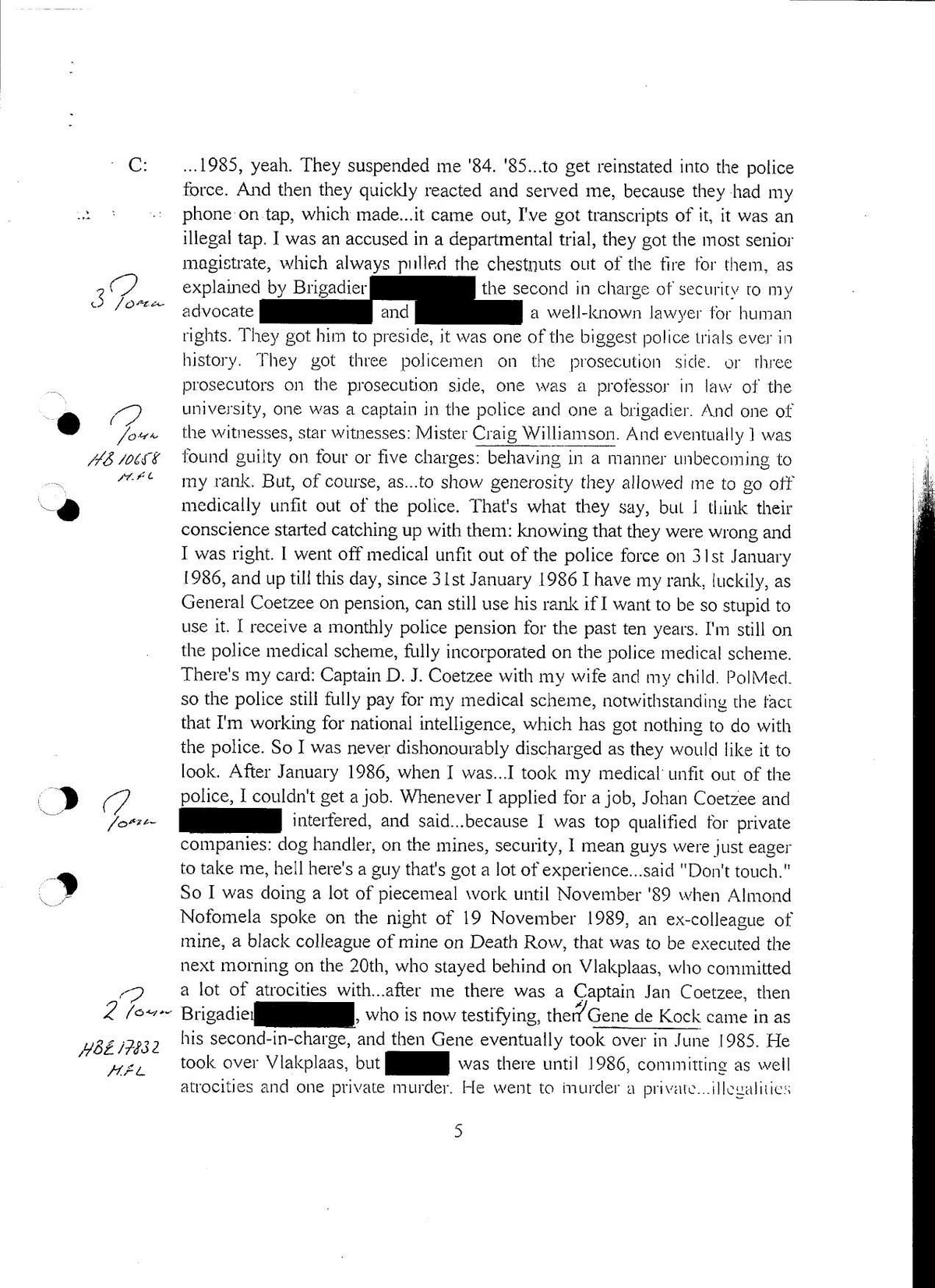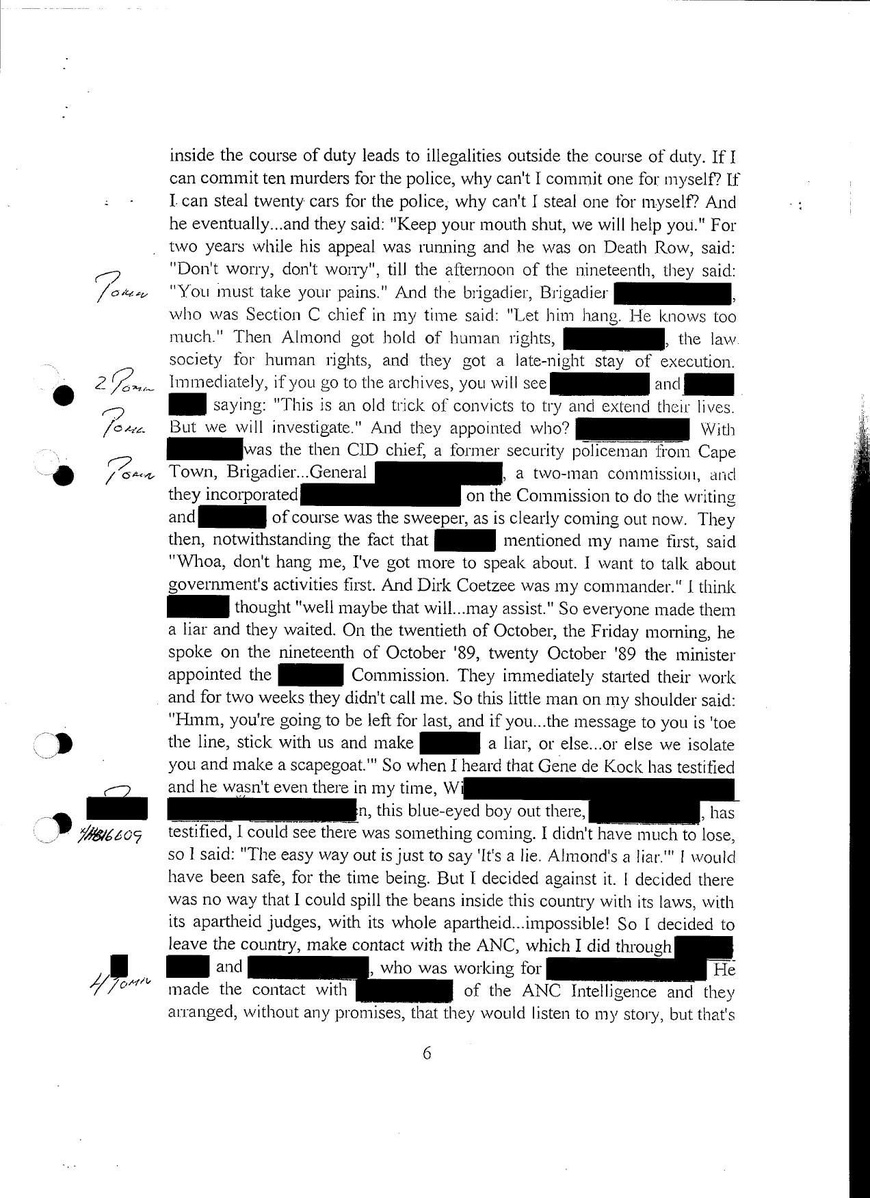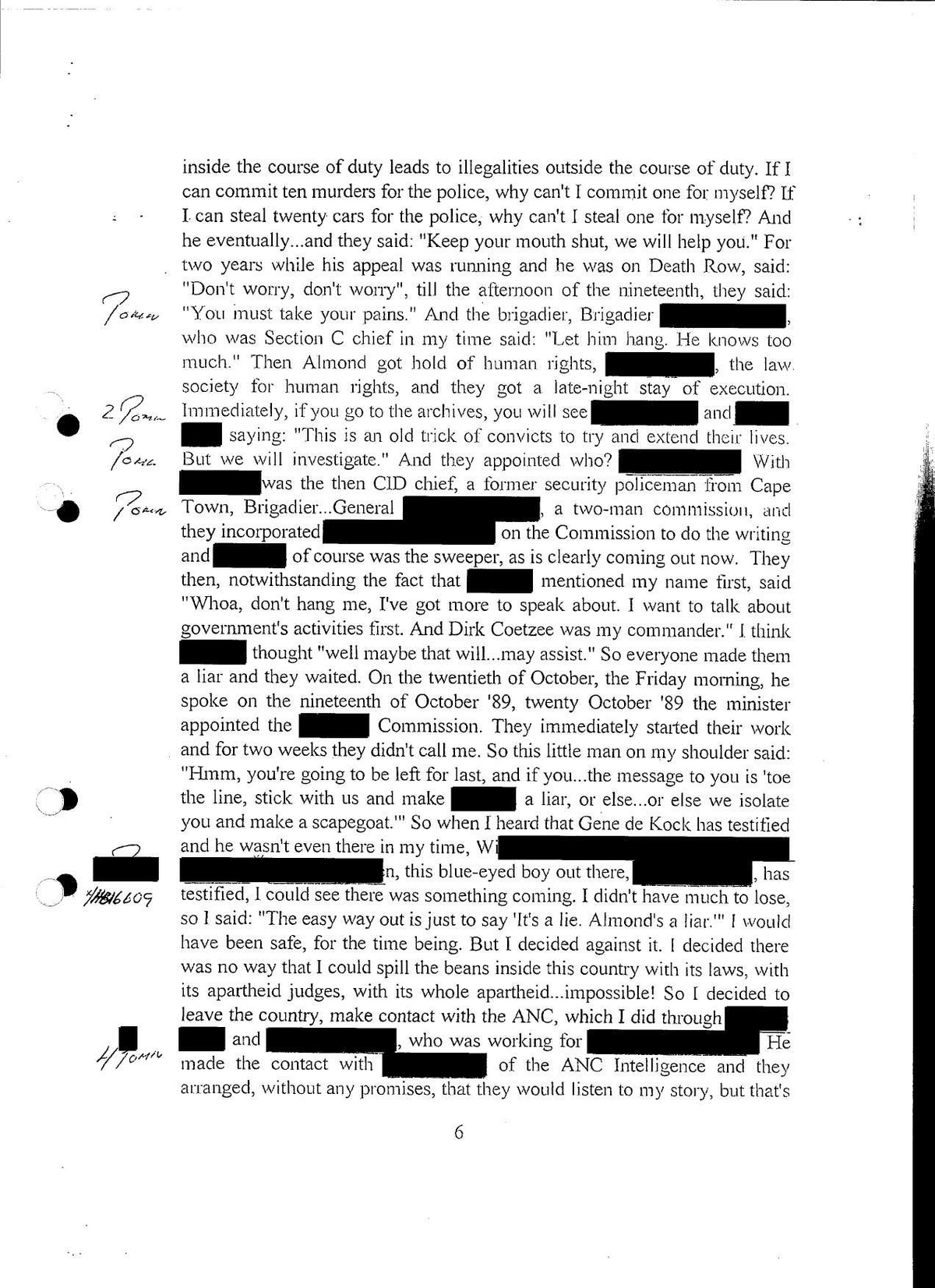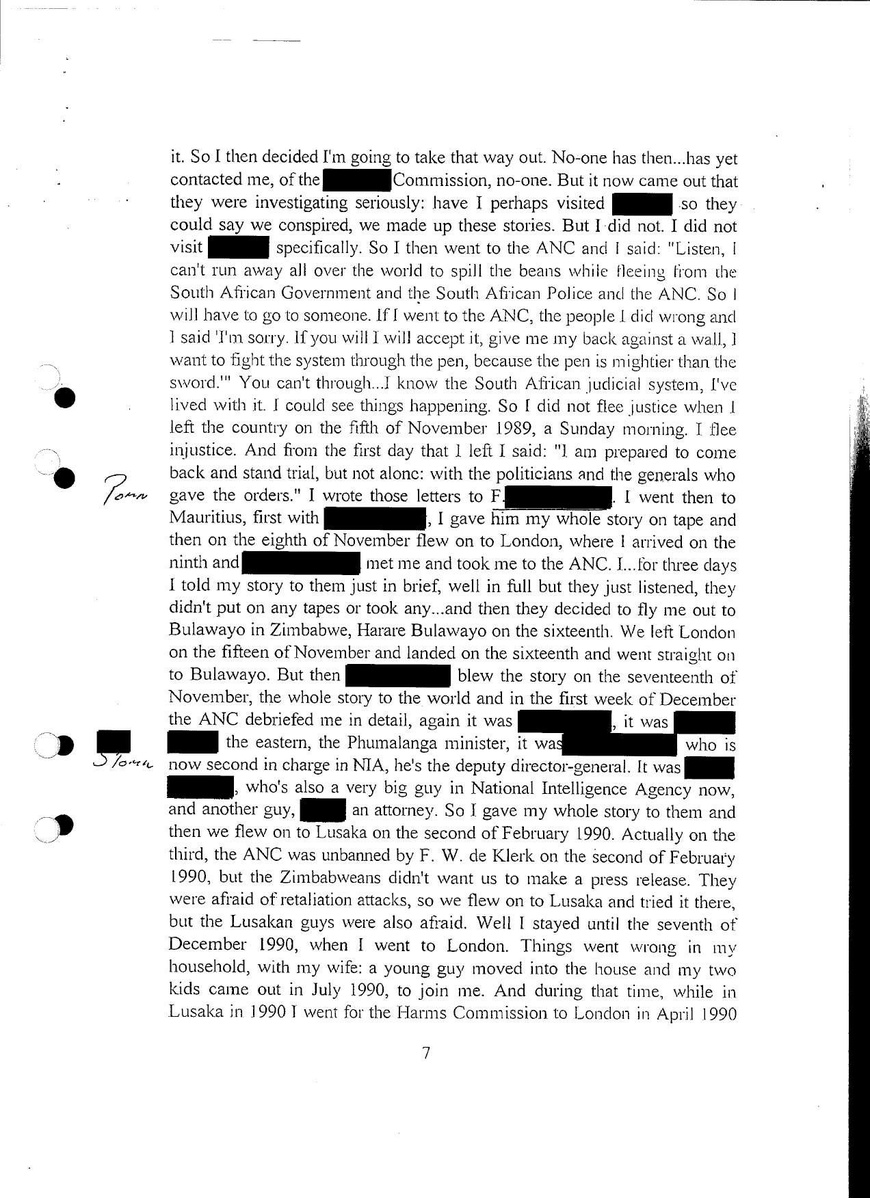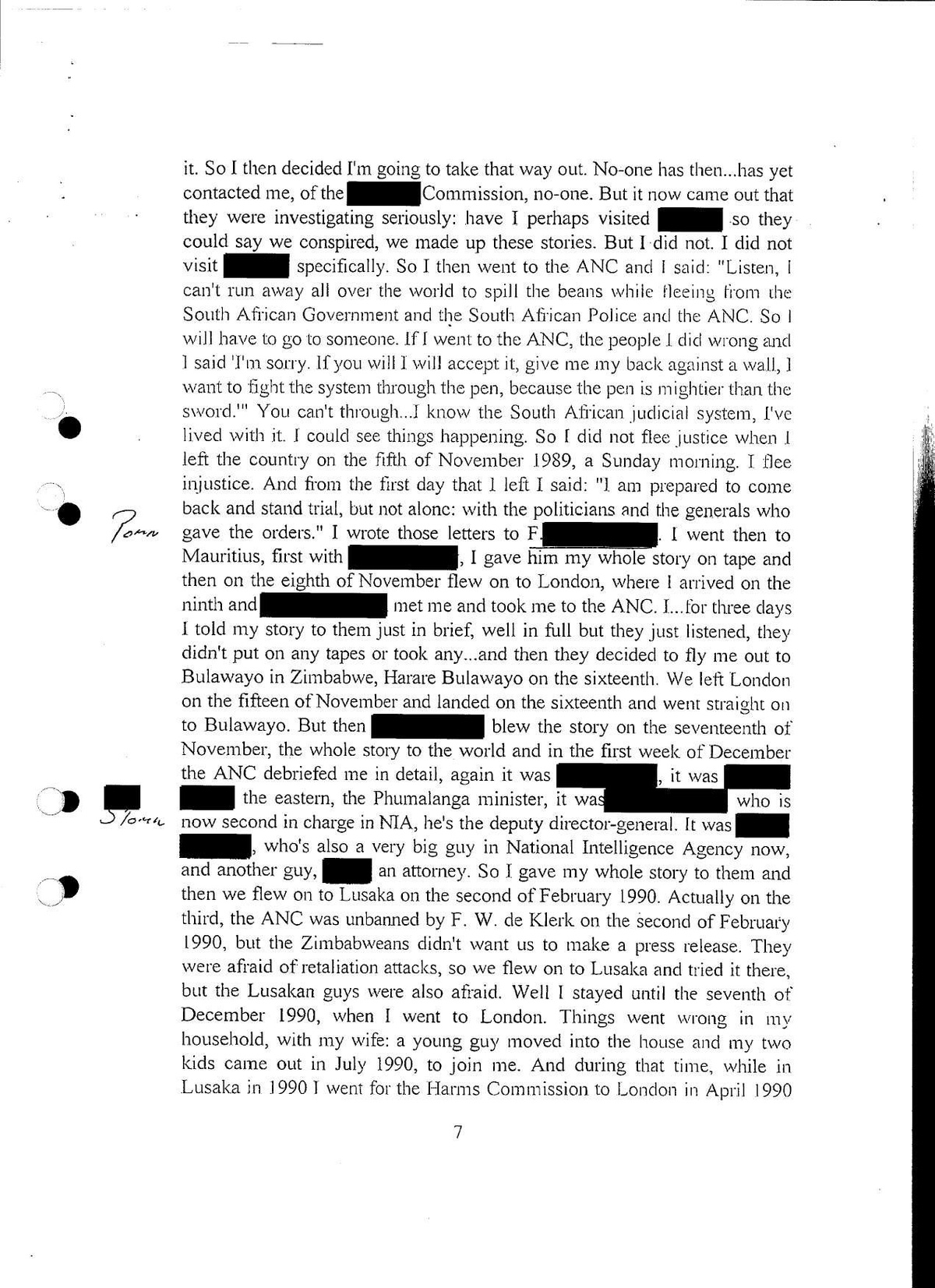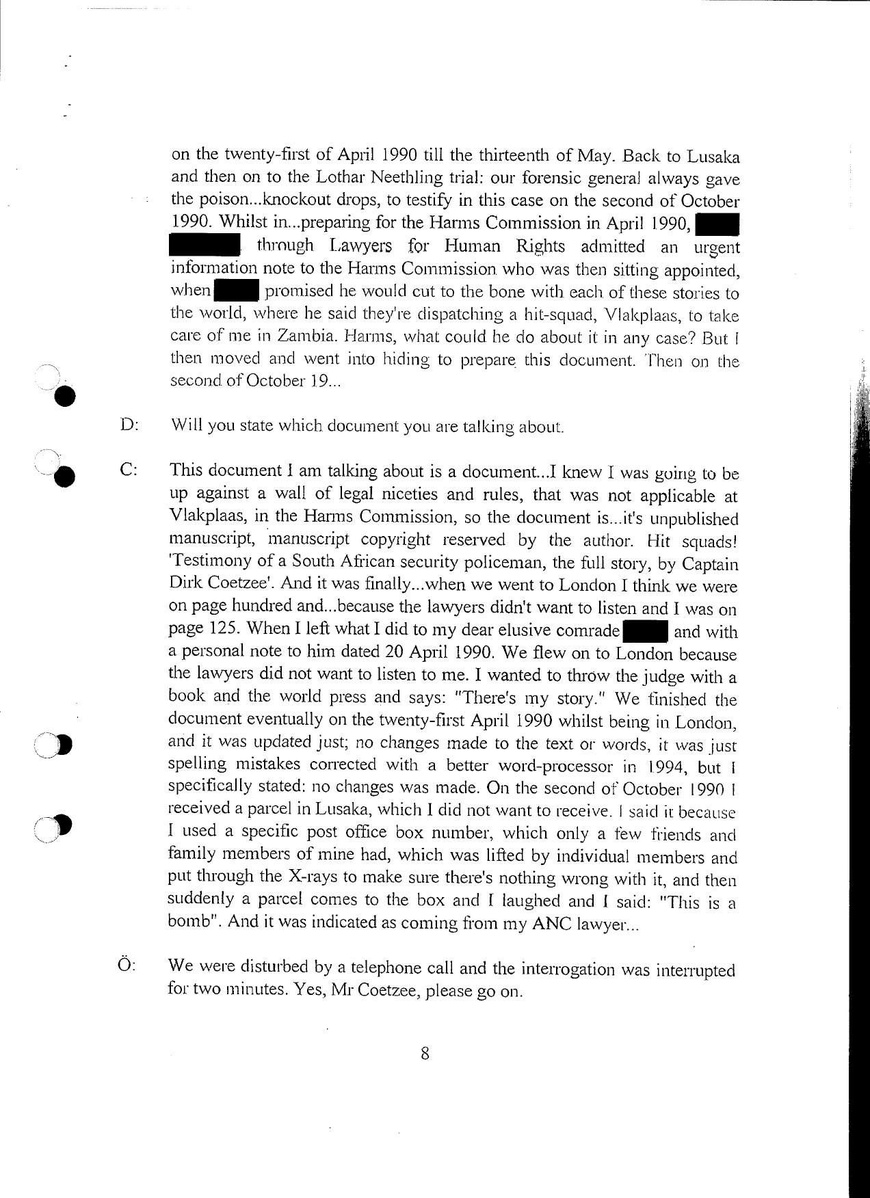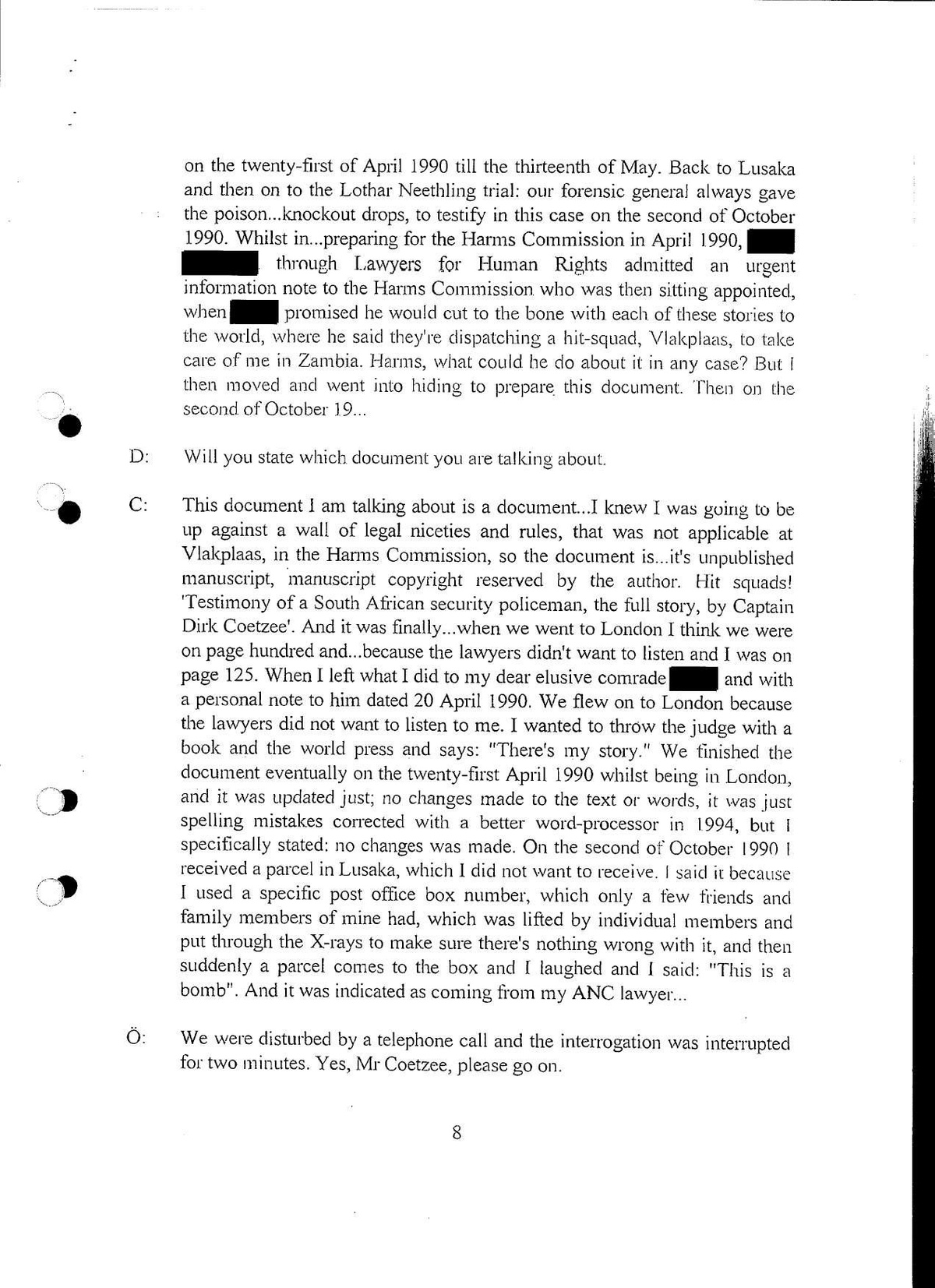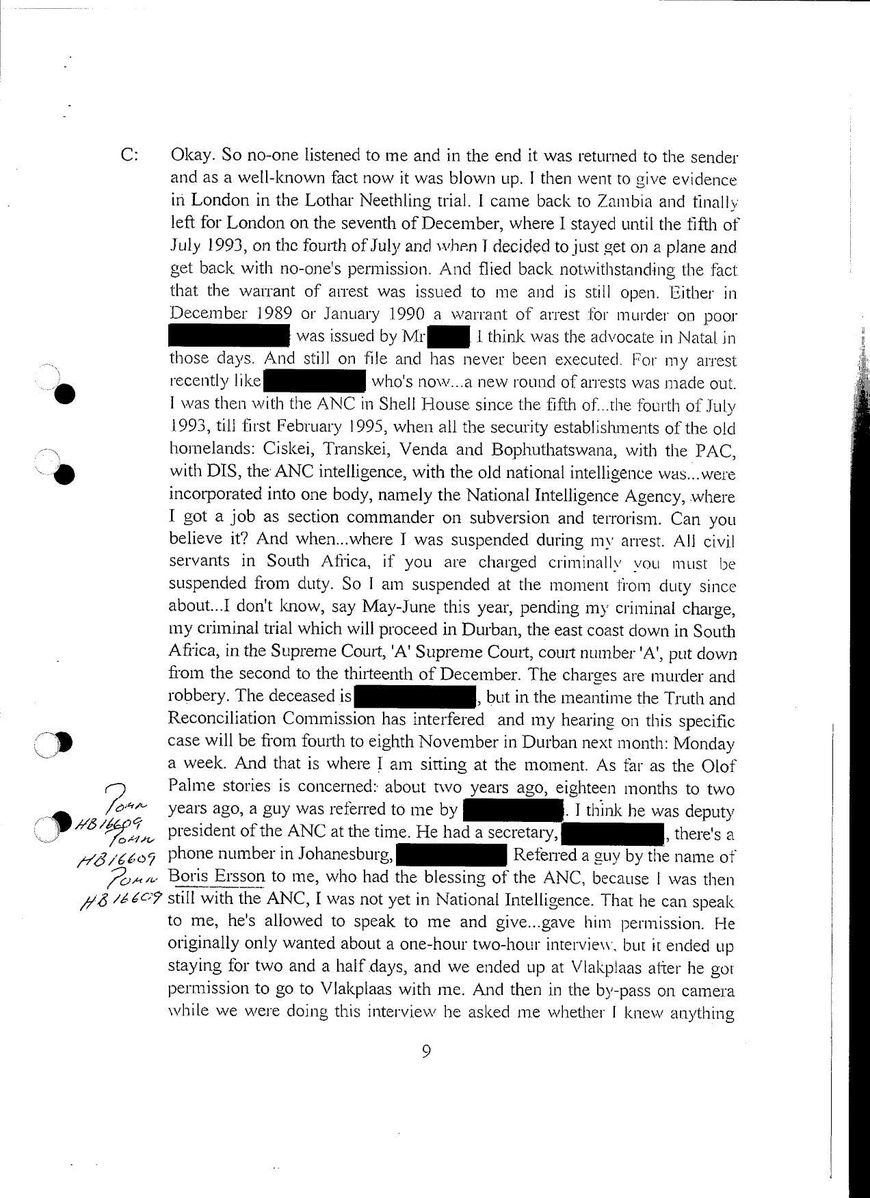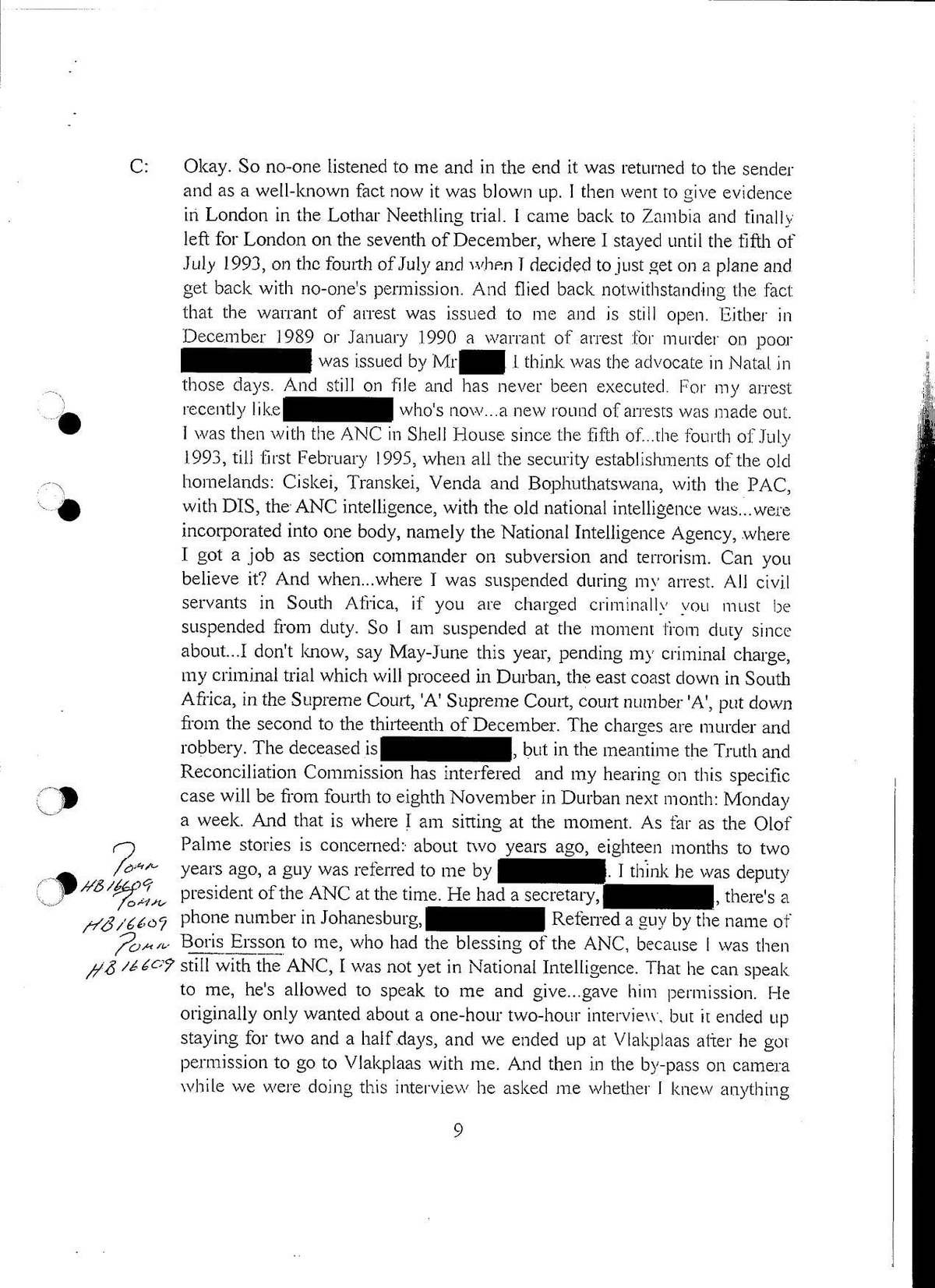- - 1 (26) -
This is the record of the interrogation of head of section/departmental manager DIRK Johanes Coetzee, date of birth 15 April 1945, residing at South Passburg Way (Soutpansbergweg).
He is an employee of the National Intelligence Agency in Pretoria.
The interrogation is being held on the premises of the Swedish embassy in Pretoria on Wednesday 1996-10-23 10:05.
The chief interrogator is Detective Superintendent Hans Ölvebro and Chief Prosecutor Jan Danielsson is also present.
The interrogation is being recorded on tape and is being held in English.
Dirk Coetzee has been informed that he is to be interrogated with respect to any possible information he may have concerning South African involvement in the murder of Olof Palme.
Ö = Hans Ölvebro
D = Jan Danielsson
C = Dirk Coetzee
Hans Ölvebro: Yes, Mister Coetzee, we will start with that you will give us a brief information on your own background, military and police background and what you are doing today.
Dirk Coetzee: I was born in South Africa in 1945, a small rural town: Pokwani. And then moved to Pretoria at the age of two years: my father was working in the post office, where I grew up and schooled.
My primary school and my high school career in Rietfontein, very near to the suburb Reitondale, where I'm staying now. Conservative Afrikaner community, Dutch Reformed Church.
And then started to work in the post office in 1963 after completing school for seven and a half years ... for six and a half years, as a post office investigating officer: I was first on the counters, later a post office detective.
During 1966 I volunteered to do my military training in the South African Navy. It was then nine months. I was not elected to do it, but I volunteered for it, so I went for nine months military training as a radar plotter in the
